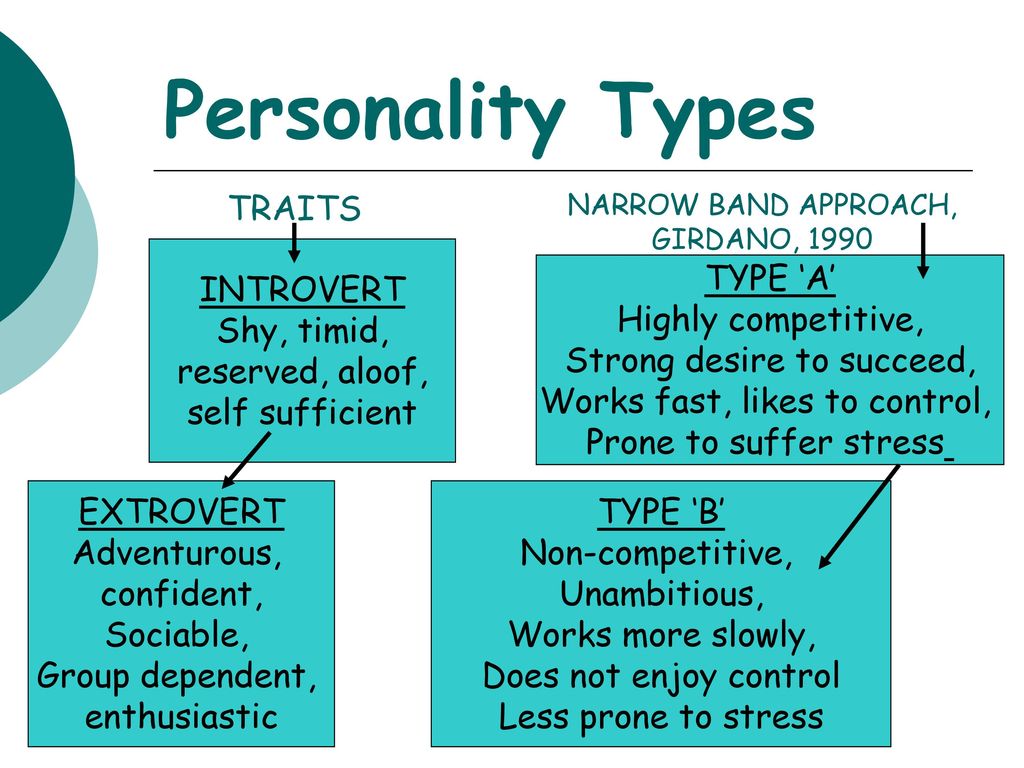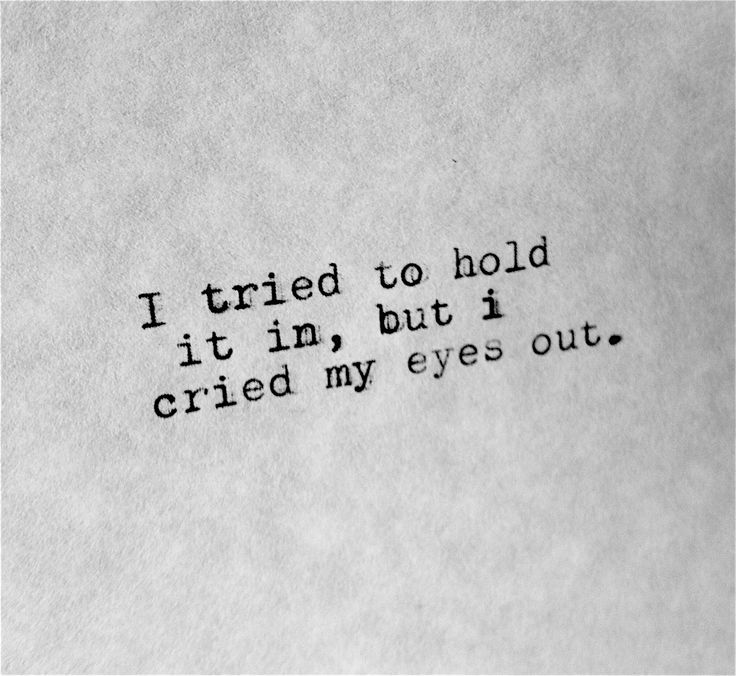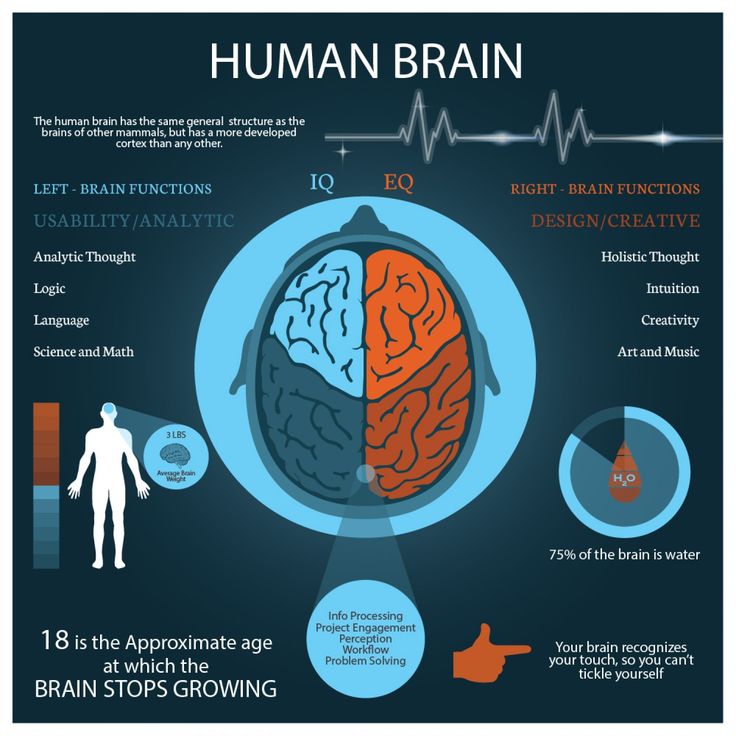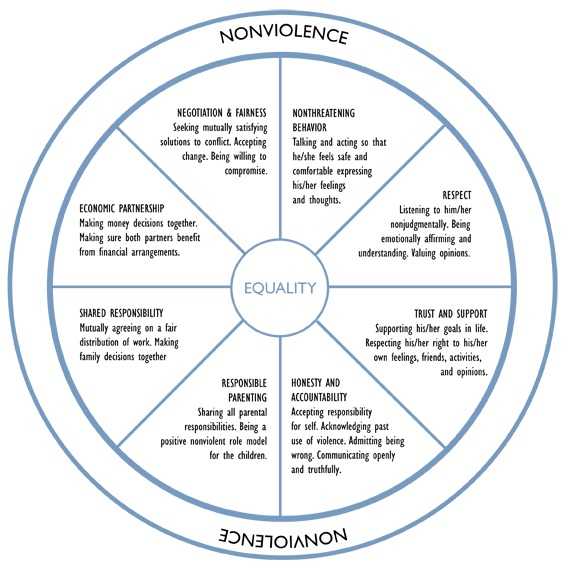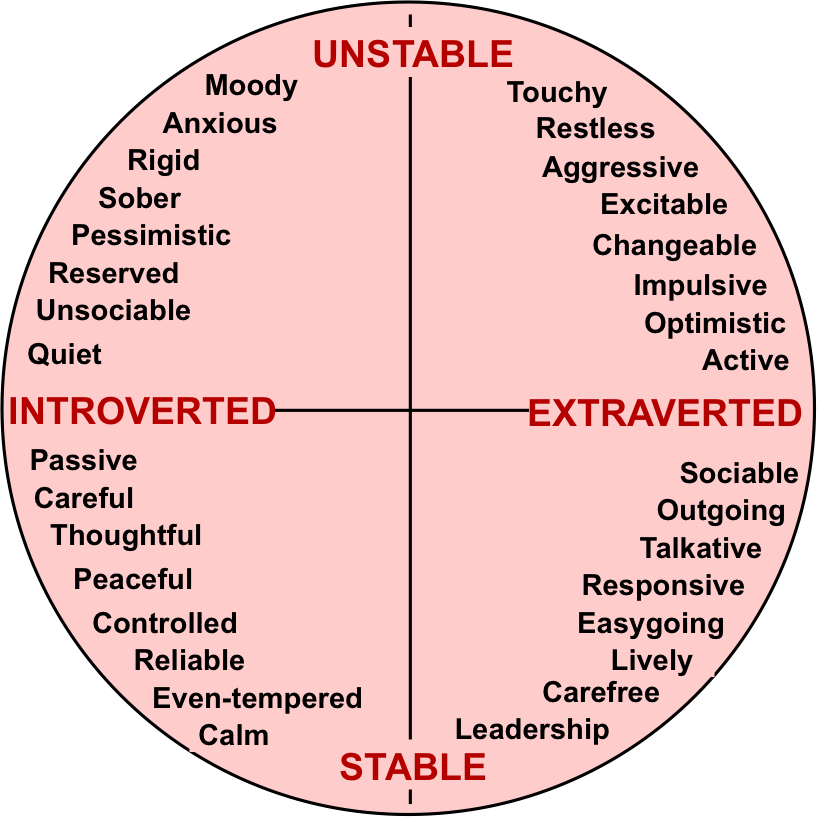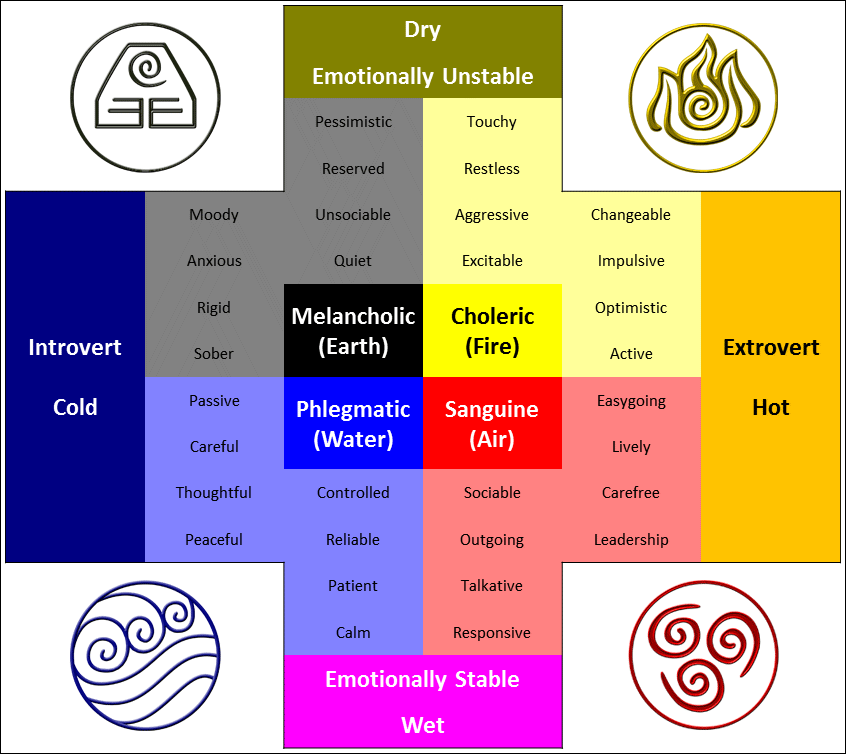Introvert personality definition
Signs of an Introvert Personality: Types, Traits & Characteristics
Written by Rachel Reiff Ellis
In this Article
- What Is an Introvert?
- Signs You Might Be an Introvert
- Causes of Introversion
- Types of Introverts
- Introversion Versus Shyness
- Myths About Introverts
What Is an Introvert?
An introvert is a person with qualities of a personality type known as introversion, which means that they feel more comfortable focusing on their inner thoughts and ideas, rather than what’s happening externally. They enjoy spending time with just one or two people, rather than large groups or crowds.
When you hear the word introvert, you might think of someone who's shy or quiet and prefers to be alone. While that may be true for some introverts, there's much more to this personality type. Whether you're an introvert or an extrovert all depends on how you process the world around you.
A psychologist named Carl Jung began using the terms introvert and extrovert (sometimes spelled extravert) in the 1920s. These two personality types sort people into how they get or spend their energy. Introverts, Jung said, turn to their own minds to recharge, while extroverts seek out other people for their energy needs.
Signs You Might Be an Introvert
Around one-third to one-half of all people in the U.S. are introverts. Though it looks different in everyone, introverts have many of the same patterns of behavior. In general, introverts:
- Need quiet to concentrate
- Are reflective
- Are self-aware
- Take time making decisions
- Feel comfortable being alone
- Don't like group work
- Prefer to write rather than talk
- Feel tired after being in a crowd
- Have few friendships, but are very close with these friends
- Daydream or use their imaginations to work out a problem
- Retreat into their own mind to rest
One way to find out if you're an introvert is to take a test, such as the Myers-Briggs Type Indicator (MBTI) or the SAPA project.
Causes of Introversion
Scientists don't know for sure if there's a cause for introversion or extroversion. What they do know is the brains of the two personality types work a little differently from each other. Researchers have found that introverts have a higher blood flow to their frontal lobe than extroverts do. This part of the brain helps you remember things, solve problems, and plan ahead.
Introvert brains also react differently to dopamine than extrovert brains do. That's a chemical that turns on the reward- and pleasure-seeking part of your brain. Introverts and extroverts have the same amount of the chemical, but extrovert brains get an excited buzz from their reward center. Introverts, on the other hand, tend to just feel run-down by it.
Types of Introverts
Being an introvert isn't an all-or-nothing stamp on your personality. Psychologists think of introverts as falling somewhere on a scale. Some people are more introverted than others. Other people fall right in the middle of the scale.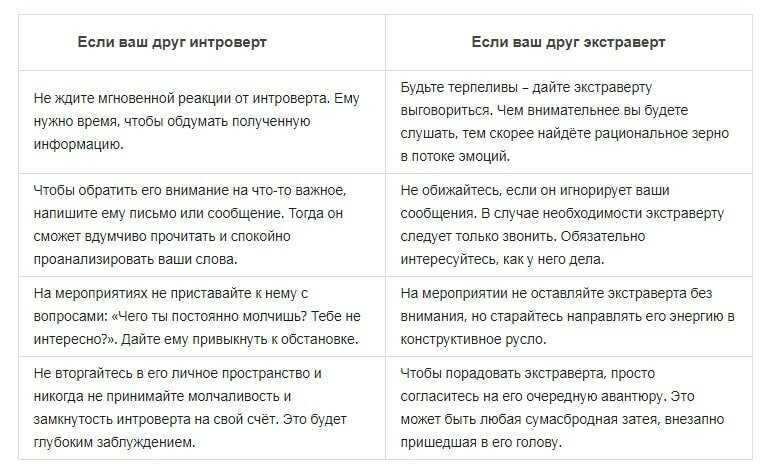 They're called ambiverts.
They're called ambiverts.
Introverts usually have a few extroverted traits mixed in with their introverted ones, and vice versa. There are a wide range of ways to be an introvert.
One study shows that introverts tend to fall into one of four subtypes:
Social introverts. This is the "classic" type of introvert. Social introverts like small groups and quiet settings over crowds.
Thinking introverts. People in this group are daydreamers. They spend a lot of time in their thoughts and tend to have creative imaginations.
Anxious introverts. They seek out alone time not just because they like it, but also because they often feel awkward or shy around people.
Restrained/inhibited introverts. These introverts think before they act. They aren't likely to make a decision on a whim. Typically they take longer to take action.
Your introverted ways may change over time, and in different settings, too.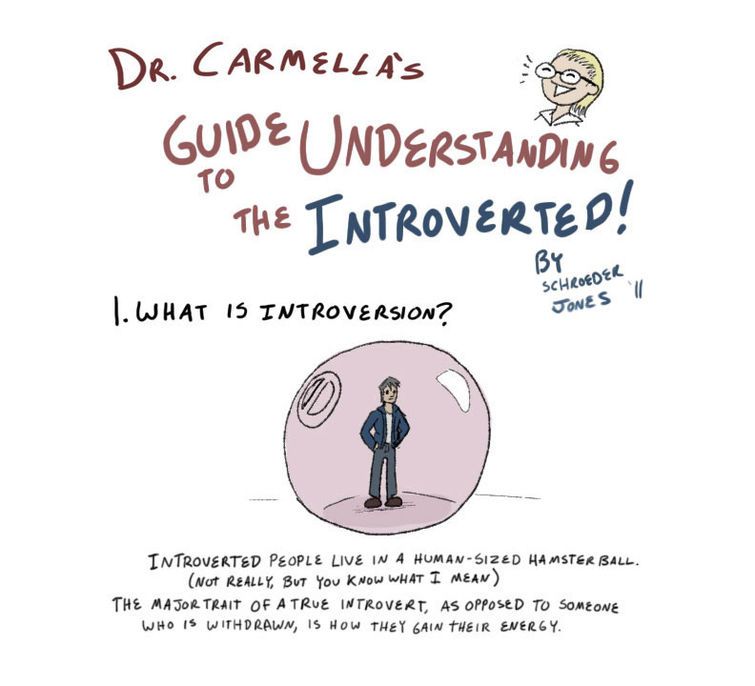 You're not likely to swing from introvert to extrovert. But it's possible you could become more or less introverted, depending on what's going on in your life.
You're not likely to swing from introvert to extrovert. But it's possible you could become more or less introverted, depending on what's going on in your life.
Introversion Versus Shyness
Many people think of introverts as shy, but the two aren’t linked. Introversion is a personality type, while shyness is an emotion.
People who are shy tend to feel awkward or uncomfortable when they’re in social situations, especially when they’re around strangers. They may feel so nervous, they become sweaty. Their heart may beat quicker, and they may get a stomachache. They may be inclined to skip social events because they don’t like the negative feelings that take over their thoughts and bodies when they have to go to parties or other activities.
People who are introverted also prefer to skip social events, but it’s because they feel more energized or comfortable doing things on their own or with one or two other people. Introverts don’t choose to skip social events because they have strong negative reactions to larger gatherings the way that shy people do; they just prefer being alone or in very small groups.
Myths About Introverts
One common myth about introverts is that they’re shy. Some introverts may be shy, but this is not the case for all introverts. Other myths include:
- Introverts are unfriendly. Being an introvert doesn’t affect how friendly you may be. Some people may think that introverts are unfriendly because they don’t tend to have large groups of friends, and they may reflect on situations quietly rather than joining in on conversations at gatherings.
- Introverts can’t be leaders. Although people may think of an extroverted personality when they imagine a leader, introverts have the skills to be bosses and leaders, too. Some of their qualities make them effective leaders: They listen to their employees’ ideas, they can stay focused on long-term goals, and they may seem less threatening, so people may accept them in their roles.
- It’s hard to get to know introverts. Introverts prefer to have deep friendships with only a handful of people.
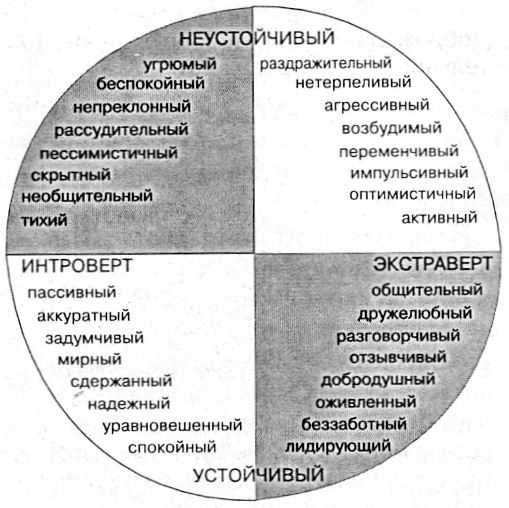 They may not open up to everyone who wants to small-talk, but the people they’re close with know them very well and develop real friendships with them.
They may not open up to everyone who wants to small-talk, but the people they’re close with know them very well and develop real friendships with them.
What Is an Introvert? Definition & Guide to Introversion
What Is an Introvert? Definition & Guide to Introversion
Introvert Definition:
The definition of an introvert is someone who prefers calm, minimally stimulating environments. Introverts tend to feel drained after socializing and regain their energy by spending time alone. This is largely because introverts’ brains respond to dopamine differently than extroverts’ brains. In other words, if you’re an introvert, you were likely born that way.
How Do I Know if I’m an Introvert?
Have you always felt different?
Do you enjoy spending time alone?
Do you ever feel like you’re the only person who doesn’t need to talk, talk, talk — or be around people all the time?
If so, you might be an introvert.
Being an introvert is perfectly normal.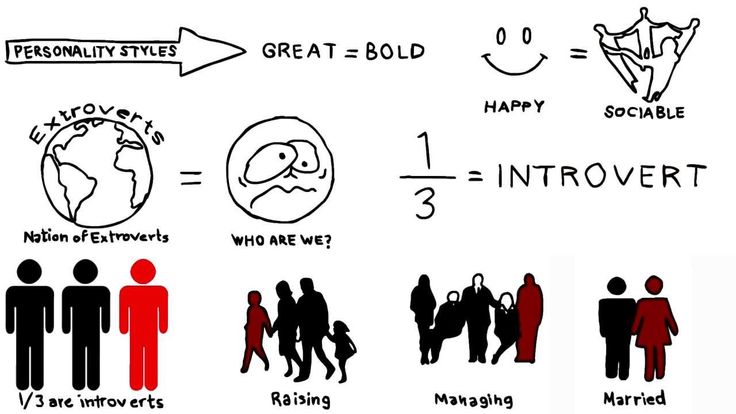 Despite what your peers, teachers, and even parents may have told you, being an introvert doesn’t mean there’s something wrong with you—and it’s not even that uncommon. Studies suggest that 30 to 50 percent of the U.S. population are introverts. That’s one out of every two or three people you know.
Despite what your peers, teachers, and even parents may have told you, being an introvert doesn’t mean there’s something wrong with you—and it’s not even that uncommon. Studies suggest that 30 to 50 percent of the U.S. population are introverts. That’s one out of every two or three people you know.
The result? Even if you’re not an introvert yourself, you likely work with, are married to, or are friends with an introvert. Most people know more introverts than they think.
Right now, there’s an introvert revolution going on. Slowly, our extroverted world is learning to understand and accept the introvert’s way. But in order to do that, we first need to better understand what introversion is — and what it’s not. That’s the purpose of this guide, and our entire website.
Are you an an introvert? Or, is there an introvert in your life that you’d like to understand? If so, read on.
Table of Contents
- What Does It Mean to Be an Introvert?
- Are Introverts Shy?
- 5 Myths About Introverts
- 13 Signs You Are an Introvert
- There’s No Such Thing as a Pure Introvert
- Can an Introvert Become an Extrovert?
- The Gift of Being an Introvert
- How to Thrive as an Introvert
- Learn More About Being an Introvert
What Does It Mean to Be an Introvert?
The most common definition of an introvert is someone who gets drained by socializing and recharges by being alone.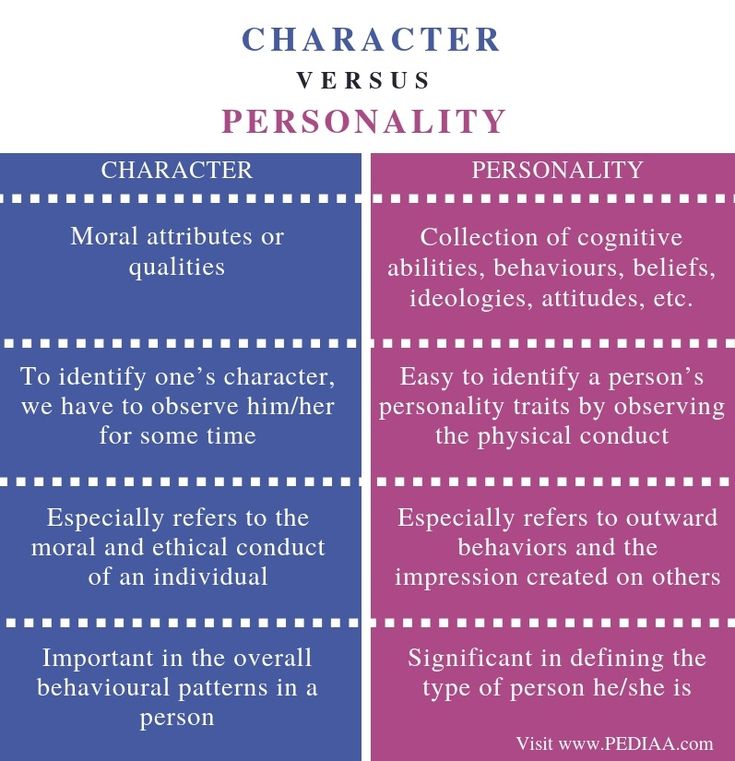 But there’s so much more to introversion than that.
But there’s so much more to introversion than that.
Everyone is born with an innate temperament — a way that you gain energy and prefer to interact with the world. Introversion and extroversion are temperaments. Whether you’re an introvert or extrovert is largely determined by your genes — meaning you were probably born that way.
However, we’re also shaped by our life experiences. If your quiet, thoughtful ways were encouraged by your parents, teachers, and others, you probably grew up feeling confident in who you are. But, like many introverts, if you were teased, bullied, or told to “come out of your shell,” you may have developed social anxiety or felt like you had to pretend to be someone you’re not.
The good news is it’s not too late to work on the things that hold you back.
Of course, not all introverts are the same. Some introverts will need only a little bit of alone time to recharge and can handle a fair amount of social time before feeling drained.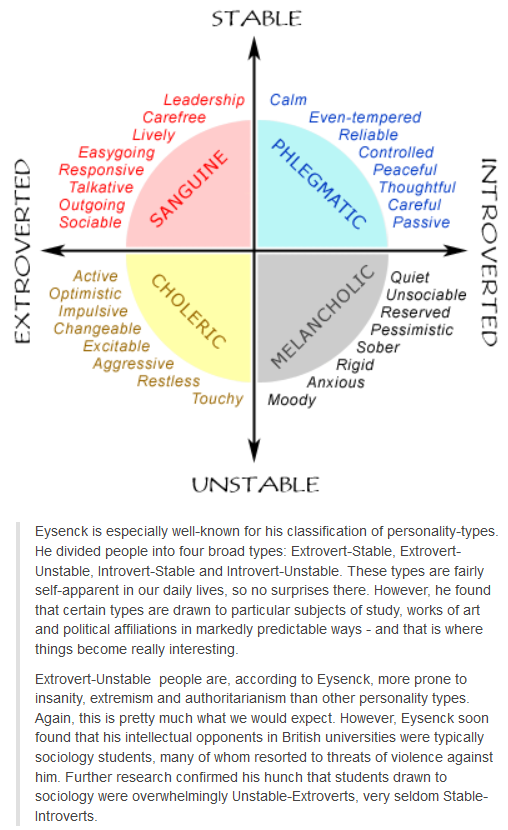 Others drain quickly and prefer to spend very long periods alone. It’s different for each person, and many introverts are somewhere in the middle.
Others drain quickly and prefer to spend very long periods alone. It’s different for each person, and many introverts are somewhere in the middle.
Sooner or later, however, all introverts will experience the dreaded “introvert hangover,” which is the feeling of being completely wiped out from too much “people time” or stimulation. This can mean feeling fatigued, unable to concentrate, or even grouchy. It’s as if your brain has used up all its mental energy and just doesn’t haven’t any left. (And, in fact, that’s exactly what has happened.)
The result is that most introverts share certain characteristics:
- We’d rather stay home most nights than go out to one social event after another.
- We enjoy quiet, solitary activities like reading, writing, gaming, gardening, or drawing.
- We’ll usually choose the company of a few close friends over a wild party.
- We do our best work alone.
- Many of us will avoid small talk or other unnecessary social interactions.
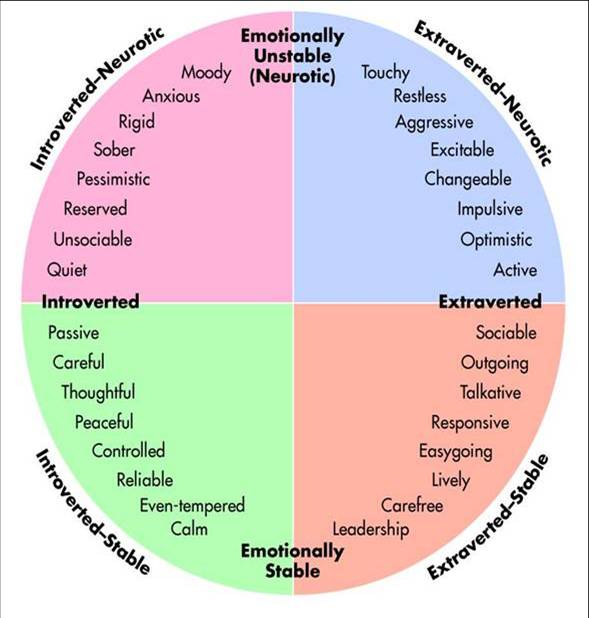
Are Introverts Shy?
Some introverts are and some aren’t. This is probably the single most misunderstood thing about being an introvert.
The truth is that being shy and being an introvert are two totally different traits:
- Being shy means you get very nervous and self-conscious in social situations. Both introverts and extroverts can have this trait — not all natural-born extroverts run around chatting with strangers!
- Being introverted means socializing wears you out. You might not be nervous or shy at all. In fact, many introverts enjoy socializing (as long as it’s meaningful!). And some even get misidentified as ambiverts or extroverts. But since it will eventually tire you out, you probably avoid extra social time when you can.
Compare social stamina to running. If extroverts are marathon runners, introverts are sprinters. That doesn’t mean that introverts don’t like running (er, social time). It just means we have to conserve our energy.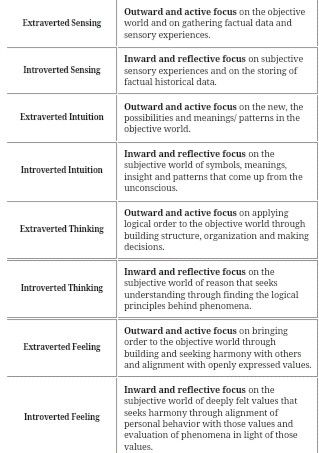
5 Myths About Introverts
Unfortunately, many people don’t fully understand what it means to be an introvert. They equate introversion with shyness, depression, or social anxiety. When introverts go quiet, we are wrongly accused of being stuck up, angry, or disinterested. And when we spend time alone, we are often accused of being antisocial or selfish.
For most introverts, these misconceptions couldn’t be further from the truth. Here’s the truth behind the five worst stereotypes:
- Introverts are not necessarily socially awkward. Just like shyness, social awkwardness is a separate trait from introversion. Many introverts can actually be quite charismatic in social situations. (In fact, introverts account for 60 percent of all lawyers, a profession that requires quite a bit of confidence speaking in front of others.)
- Introverts don’t hate people. An introvert’s lack of chitchat is often misinterpreted. People take it as a sign that we don’t like others.
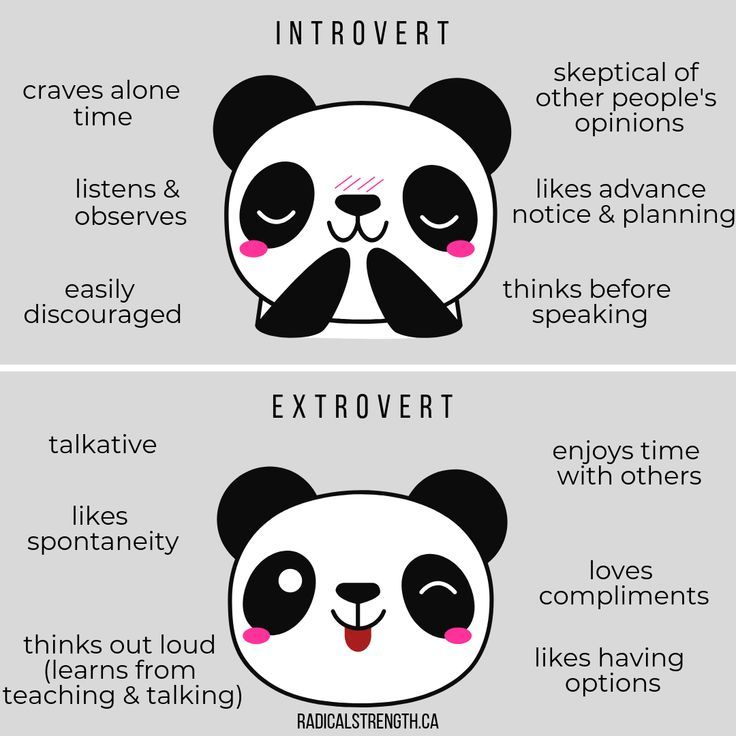 The truth is the opposite. Introverts often avoid small talk because we consider it to be inauthentic. We crave a more meaningful connection with the people we talk to.
The truth is the opposite. Introverts often avoid small talk because we consider it to be inauthentic. We crave a more meaningful connection with the people we talk to. - Introverts aren’t rude. Yes, if an introvert is completely out of social energy, we might start getting a little crabby or simply zone out. But we’re not trying to be rude — and we’ll be a lot more friendly if you give us some time to recharge alone.
- Introverts don’t need be “fixed.” Being an introvert is part of who we are, and it can be a source of brilliance. We are at our best when we embrace our nature and use it as a source of strength.
- Introverts don’t (usually) wish we were extroverted. Sure, sometimes introverts envy an extrovert’s ability to think quickly or fit naturally into a social situation. But we also take great delight in our inner world and our alone time. Introverts have many strengths that don’t come naturally to extroverts, and we wouldn’t trade them for the world.
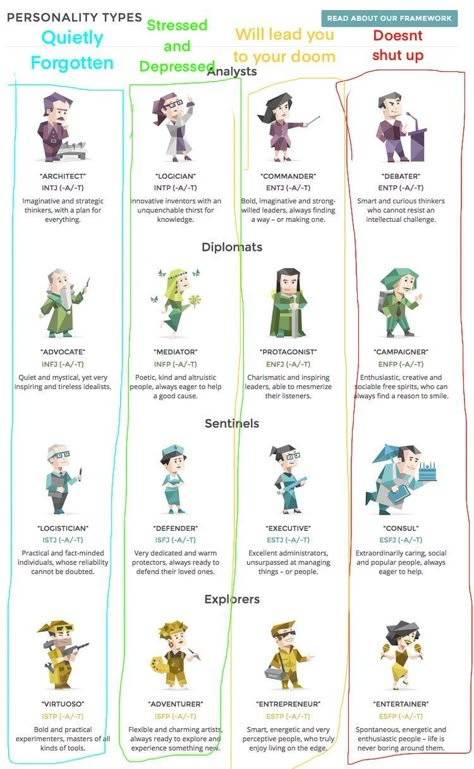
13 Signs You Are an Introvert
Every introvert is unique, but there are some signs you’re an introvert that are pretty telling. Here are 13 signs that you might be an introvert:
-
You enjoy spending time alone
Most introverts enjoy social time too, but all introverts enjoy the solitude of spending time alone. If alone time feels refreshing, peaceful, and helps you recharge, you’re probably an introvert.
-
Certain types of socializing drain you
It’s possible that not all social settings affect you the same way. But with new people, large crowds, or in noisy environments, you probably get wiped out fast. Stay out too long and you may even crash — a.k.a. the “introvert hangover.”
-
You do your best work alone
Introverts rarely work well in crowded environments. The more secluded you are, the more likely you are to focus deeply and produce great work. You may feel more creative, focused, or productive, or you may simply be able to do more in a shorter time.
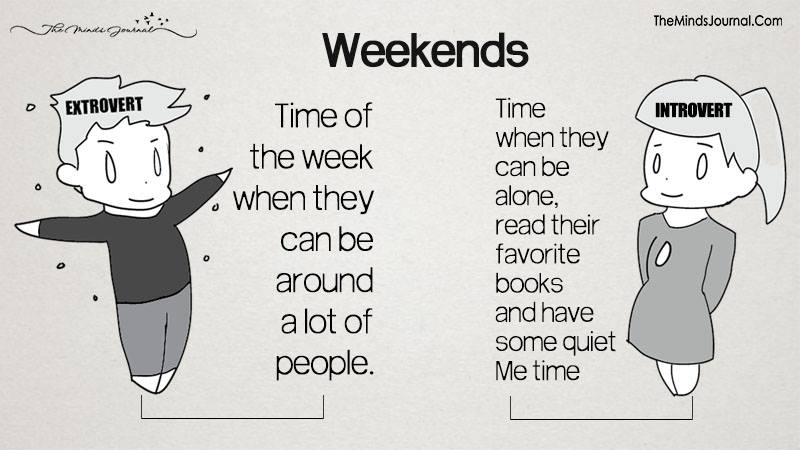 It doesn’t mean you can’t work on teams, but you like to retreat somewhere quiet once the collaborating is done. In an open office, noise-canceling headphones are your friend.
It doesn’t mean you can’t work on teams, but you like to retreat somewhere quiet once the collaborating is done. In an open office, noise-canceling headphones are your friend. -
You’d rather hang out with a few close friends than a large group of people
It’s a myth that introverts don’t like to socialize. Sitting with a few close friends, you may enjoy chatting all night, and you may even “seem” like an extrovert. For whatever reason, these types of interactions don’t drain you the way others do. But once you get to a party or large group setting, you know it’s only a matter of time before you feel wiped.
-
You have a vivid, rich inner world…
You might spend a lot of time pondering, and even dreaming. Or, you might just prefer to think things through before you act. Not every introvert is a dreamer or creative, but almost all have an entire inner world that they find just as comfortable as the world around them
-
…and you’re often “in your head”
Sometimes, you get caught daydreaming, or you get flak from coworkers who are quicker to act with less planning.
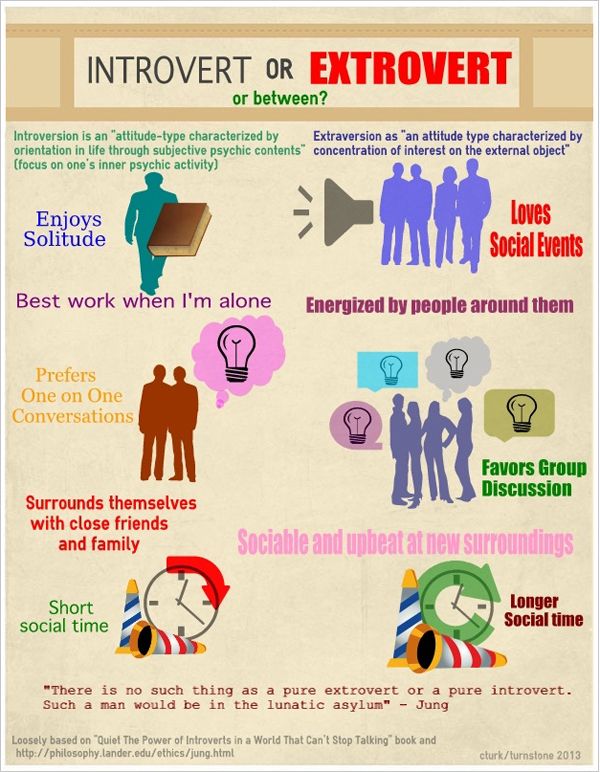 You might even have been told to “get your head out of the clouds” — or you may simply tend to zone out during a conversation and pursue your own thoughts. It’s not that the word around you isn’t interesting. It’s just that what you’re imagining or thinking about is even more interesting.
You might even have been told to “get your head out of the clouds” — or you may simply tend to zone out during a conversation and pursue your own thoughts. It’s not that the word around you isn’t interesting. It’s just that what you’re imagining or thinking about is even more interesting. -
You prefer to stay out of the spotlight
There are exceptions to this, but many introverts prefer not to speak up in large group settings — and would rather hand off speaking roles to someone else. Of course, many introverts are creatives and performers, and some even love getting on stage. Others are business leaders who speak in front of teams or audiences all the time. Introverts are fully capable of learning and mastering these skills, but if your natural inclination is to avoid group participation, you may be an introvert.
-
You can “network,” but you feel like you’re faking it
If you hate small talk, and you also hate having to talk to strangers, then networking is just about the least comfortable thing you can do — and that’s exactly how most introverts feel.
 That doesn’t mean you can’t do it when it’s necessary for work or business, but if given a choice, you’d schedule your next networking event for sometime in 2089.
That doesn’t mean you can’t do it when it’s necessary for work or business, but if given a choice, you’d schedule your next networking event for sometime in 2089. -
You don’t always know what to say
Instead, you routinely find yourself thinking of the right response after the conversation is over. This is normal: many introverts struggle with word retrieval (the ability to choose the right words on the fly).
-
You’re better at writing your thoughts than speaking them
You may or may not be a natural novelist, but if writing something is more comfortable than saying it in person, it’s a strong sign you’re an introvert. Introverts take time to think about what we want to say, and while that can slow down a live conversation, it makes for very clear and expressive writing.
-
You dive deep, both in your relationships and interests
What exactly do you do with that alone time you like to have? It’s time for self-reflection, of course! You might spend it thinking about your life, the people you love, your career, or the “big questions” in life.
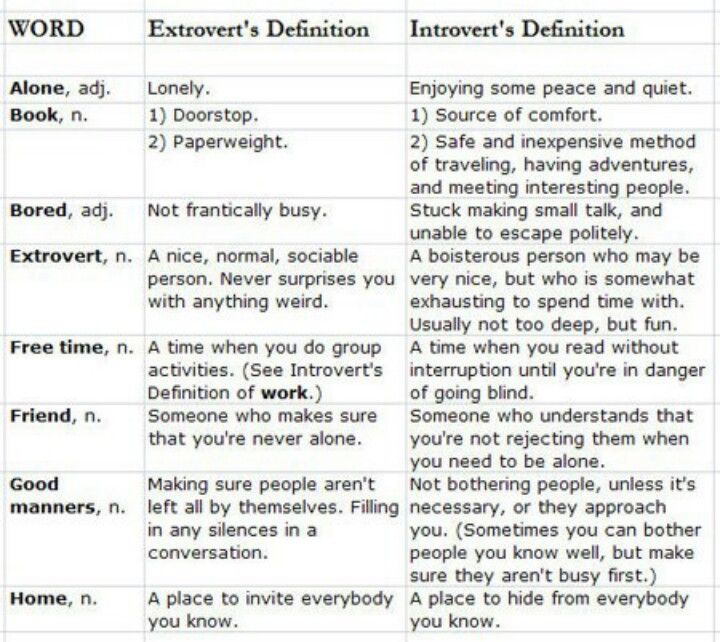 Or, you might spend it reading, researching, or creating art. All of these things give you a tendency to go deeper than others into the topics and pursuits that interest you. (Of course, you also spend some of that time just relaxing and recharging.)
Or, you might spend it reading, researching, or creating art. All of these things give you a tendency to go deeper than others into the topics and pursuits that interest you. (Of course, you also spend some of that time just relaxing and recharging.) -
You seek meaning
When you’re the type of person who thinks deeply about your world, it’s hard to settle for shallow relationships, shallow goals, or shallow conversation. If you seek a sense of meaning in your job and your relationships, and prefer meaningful conversation over small talk, it could be a sign you are an introvert.
-
You feel out of place in an “extroverted” society
Extroverts often don’t notice it, but our society assumes that people should be chatty, social and quick to speak up — pretty much all the time. Did you feel pressure to talk more even at a young age? Did you always feel out of place, or even wonder if there was something wrong with you for not being more social? This single factor may be the biggest sign you’re an introvert.

These are just some of the signs of an introvert, and not every introvert will match all of them. But if you — or someone you love — matches most of them, it’s a pretty strong sign. Want even more? Check out 21 Undeniable Signs You’re an Introvert.
There’s No Such Thing as a Pure Introvert
No two introverts are exactly alike. What’s true for one introvert may be be quite different for another. Each introvert has a different level of tolerance for socializing and other types of stimulation.
Above all, there is no such thing as a pure introvert or extrovert. “Such a man would be in the lunatic asylum,” the famous psychotherapist Carl Jung once noted. Introversion and extroversion are on a spectrum, meaning, they are not all-or-nothing traits. Everyone acts introverted at times and extroverted at other times. It’s all about what your preference — in general — tends to be.
If you’re not sure whether you’re more of an introvert or more of an extrovert, you can take the introvert quiz and find out.
Can an Introvert Become an Extrovert?
There are two answers to this:
- No, introverts cannot become extroverts.
- Why would we want to?
Why we can’t: The research is clear that introverts express their temperament from a young age. In fact, one study by psychologist Jerome Kagan found that it’s possible to predict which babies will grow up to be introverted based on their reaction to stimuli at just four months old. In other words, if you have an introverted nature, you’re likely to be that way from birth and remain that way throughout your life.
Why we don’t want to: This speaks to a deeper truth about introverts. There are plenty of introverts out there who wish they could be more outgoing, but this isn’t the same thing as becoming an extrovert. Introverts, like everyone, can practice their social skills and become more capable in social situations. But it won’t change the fact that those interactions drain us.
But, if you’re hoping to become more social, there’s good news:
- There is definitely such a thing as an outgoing or “extroverted” introvert…
- …and introverts can learn social skills and get good at them with practice.
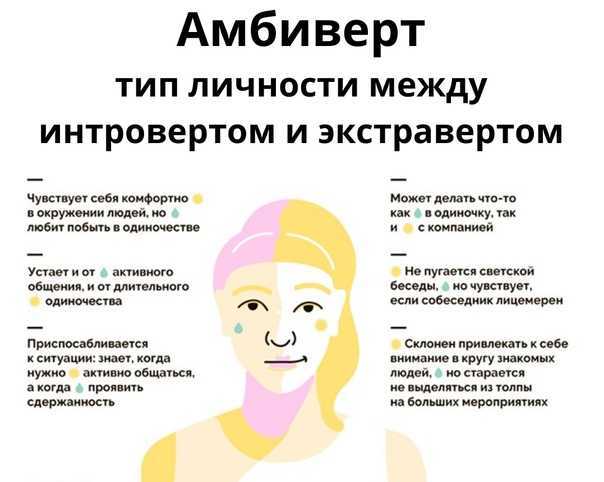
There are lots of charming introverts out there, from major stars like Lady Gaga, Audrey Hepburn and Johnny Depp to many of the warm, friendly and charismatic introverts we’ve met thanks to the Introvert, Dear community. For most of us, becoming comfortable in social situations has simply been a matter of practice—even if it seemed impossible once.
Remember: your quiet nature is part of who you are—and it’s a good thing. Introverts who embrace their nature tend to flourish.
They are happier, have better relationships, do better work, and enjoy life because their minds are well-rested and their energy level is high. The best thing you can do if you’re an introvert is not try to change it, but to take the alone time you need and let your vast inner world work for you.
The Gift of Being an Introvert
Many introverts grow up feeling out of place. We live in a fast, noisy world that sees chattiness as a virtue. Many introverts worry from a young age that something is wrong with them.
But being an introvert is a gift.
The world has a need for people who go deeper, think before they act, and look at things in new ways.
The world has a place for people who value meaningful relationships over meaningless small talk.
And the world is ready for thoughtful, contemplative people who bring calm and wisdom to a room.
These are traits that introverts offer. And, precisely because the world has so many extroverts, when you step into these traits and own them, you will find that people appreciate you — and value you.
Why? Well, we’re not all the same, but depending on the introvert, introverts are…
There is an old saying that the person who says the least is also the wisest.
Introverts aren’t born any wiser than anyone else, but we do have an advantage. We are built to do the kind of contemplation that turns into great insight over time.
How to Thrive as an Introvert
Introverts can be successful in any walk of life.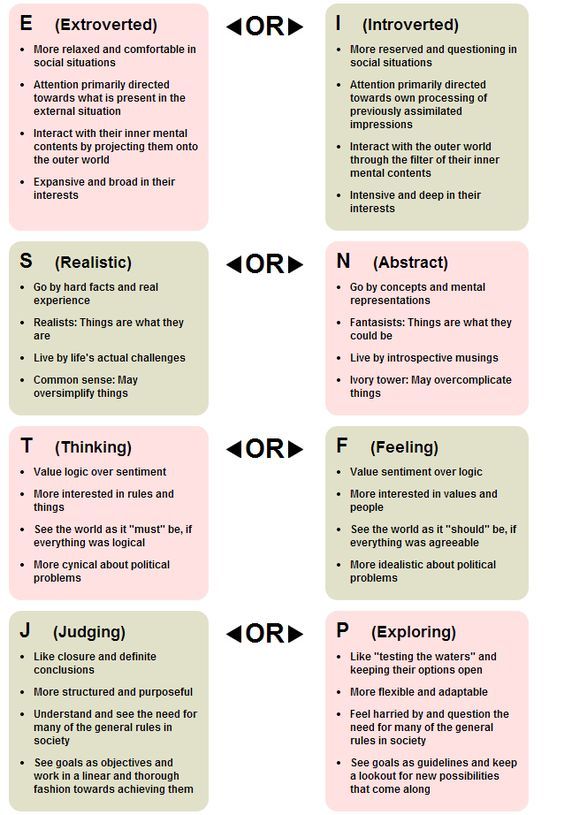
There are introverts who are famous actors and politicians. There are introvert CEOs, pop stars, authors, and engineers. And introverts, like everyone, can find happiness in love, in family, in spirituality or in learning — or in whatever gives them purpose. What’s different about introverts is what we have to do to tap into our talents and thrive:
We have to work with our introversion rather than fight against it.
That might mean turning down social invites. It might mean focusing on the friends you value most instead of trying to be everything to everyone. It might mean finding a way to get more solitude at work — especially in an open office.
And, most important, it might mean trusting your instinct about what you really need to be happy. Once you do that, you will stop feeling worn out or uncertain — and you’ll start seeing your genius come through.
Learn More About Being an Introvert
To learn more about being an introvert, we recommend the bestselling book, The Secret Lives of Introverts: Inside Our Hidden World, by Introvert, Dear founder Jenn Granneman.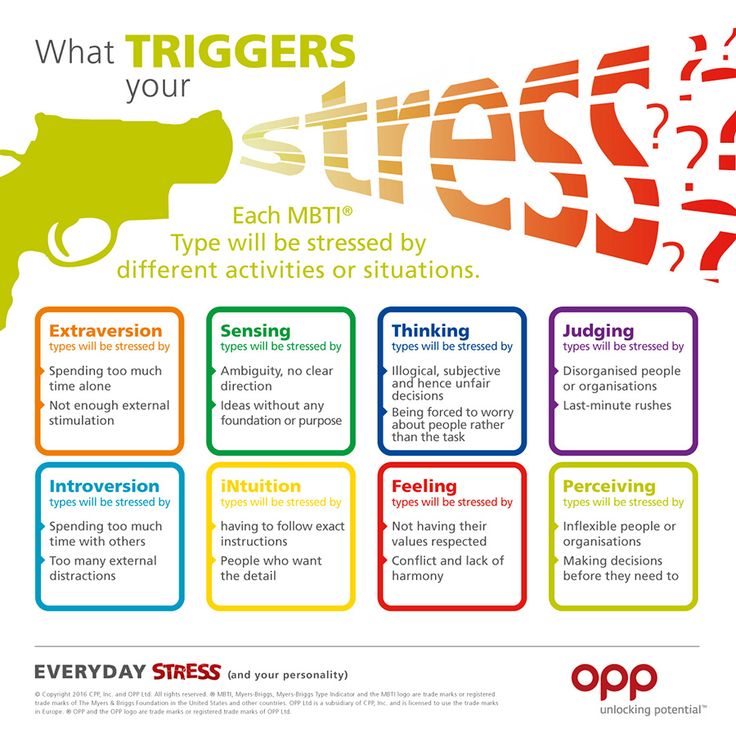
Also, we recommend starting with these articles:
Introverts Don’t Hate People, They Hate Shallow Socializing
12 Things Introverts Absolutely Need to Be Happy
The Science Behind Why It Can Be Hard for Introverts to Put Their Thoughts Into Words
Who is an introvert and what kind of occupation suits him
An introvert does not like noisy companies and prefers to spend time alone. We tell what kind of personality type it is, what are its advantages and why modern psychologists try not to use this term
Who is an introvert
An introvert is a person who is focused on his inner world. He does not like crowds of people, prefers silence and a calm environment. In solitude, an introvert restores energy, and when communicating with people, it consumes it. This is the collective image of an introvert, although there is no unambiguous interpretation of the term "introvert": scientists from different schools interpret it differently. nine0003
Carl Jung was the first to propose the concepts of "extroversion" and "introversion" in the 1920s.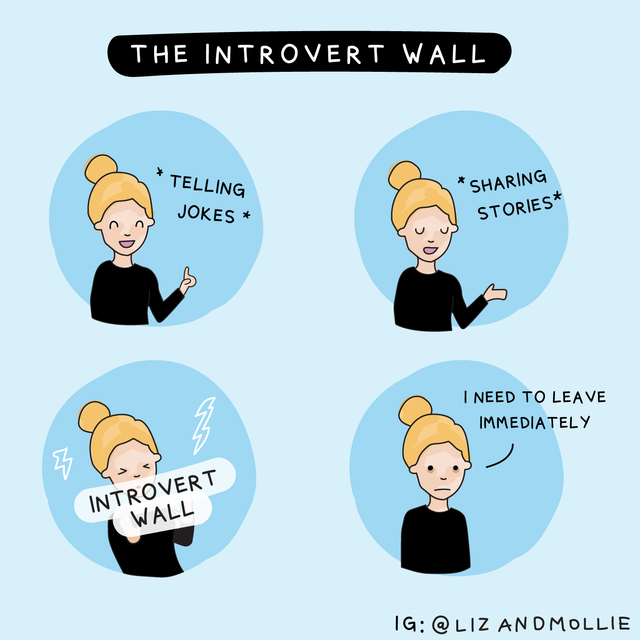 In Psychological Types, he elaborated on how scientists before him tried to distinguish between sociable party-goers and shy stay-at-homes. And then he offered his own interpretation. In his opinion, the difference between them is in the direction of vital energy, libido. For introverts, this energy is directed inward, while for extroverts, it is directed outward. That is, the attention of extroverts is directed to the world around them and other people, while introverts, on the contrary, are immersed in themselves, their fantasies and introspection. nine0003
In Psychological Types, he elaborated on how scientists before him tried to distinguish between sociable party-goers and shy stay-at-homes. And then he offered his own interpretation. In his opinion, the difference between them is in the direction of vital energy, libido. For introverts, this energy is directed inward, while for extroverts, it is directed outward. That is, the attention of extroverts is directed to the world around them and other people, while introverts, on the contrary, are immersed in themselves, their fantasies and introspection. nine0003
After Jung, Hans Eysenck took up the study of extraversion and introversion. In his opinion, introversion has several stable features: perseverance, rigidity, subjectivism, modesty, irritability. Introverts are shy, introspective, cold people. They love order, don't follow sudden impulses, and can be relied upon. Eysenck considered the parameter of extraversion/introversion to be one of the most important dimensions of personality, along with neuroticism and psychotism.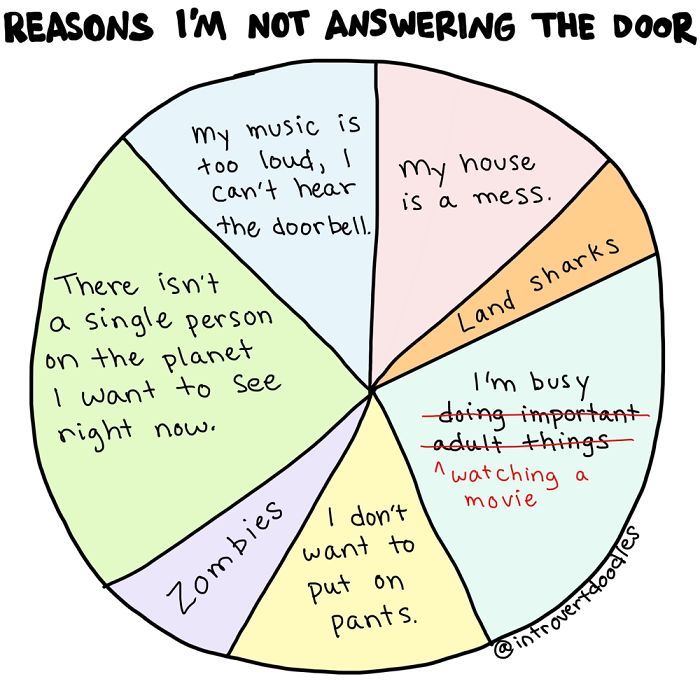 Deriving his three-factor theory of personality, Eysenck put these three dimensions at the basis. nine0003
Deriving his three-factor theory of personality, Eysenck put these three dimensions at the basis. nine0003
In the 1970s, based on the types identified by Jung, the Soviet-Lithuanian researcher Aushra Augustinavichyute created her own typology of personality - socionics. According to it, people are divided into 16 types according to 4 parameters. One of these parameters is the introversion-extroversion scale. A similar division exists in the Myers-Briggs system. At the same time, both socionics and the Myers-Briggs system have features of pseudoscience.
The German psychiatrist Karl Leonhard distinguished between extroverts and introverts in terms of their attitude to information. According to his theory, an introvert is a strong-willed person with clear values. Thanks to them, a person is able to resist society and remain true to his point of view and principles. An extrovert according to Leonhard is a conformist. A weak-willed person subject to outside influence. nine0003
According to modern research, each of us has traits of both personality types.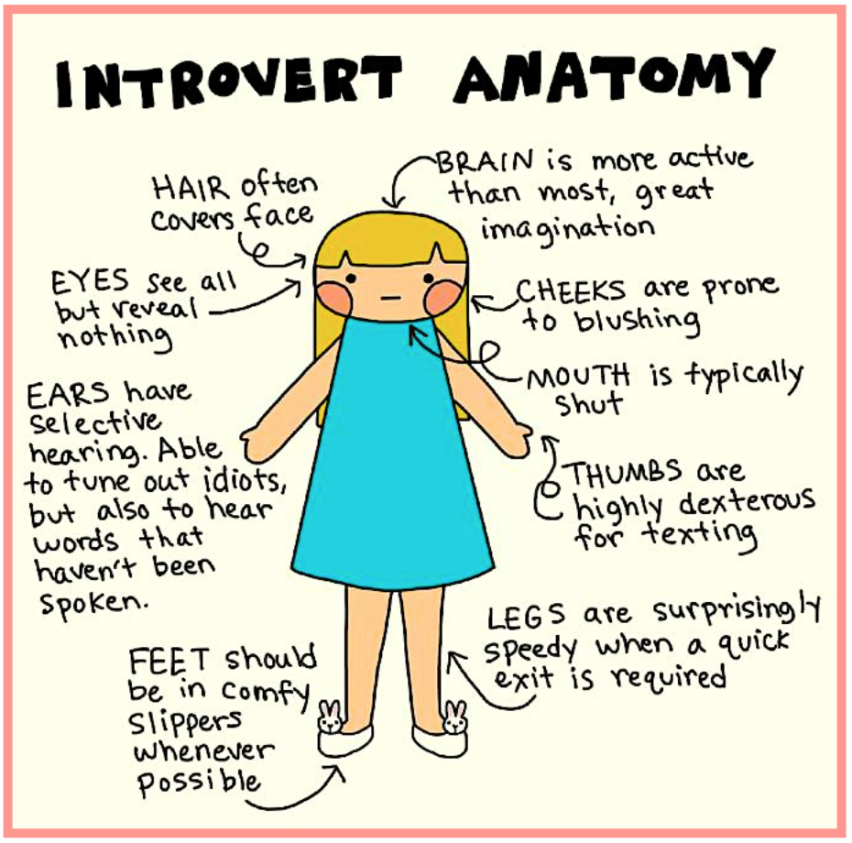 Psychologist and cognitive-behavioral psychotherapist Elizaveta Muratova told RBC Trends that modern psychologists prefer to avoid the terms "introvert" and "extrovert". These are too general terms. But there is still a division into personality types in modern psychology:
Psychologist and cognitive-behavioral psychotherapist Elizaveta Muratova told RBC Trends that modern psychologists prefer to avoid the terms "introvert" and "extrovert". These are too general terms. But there is still a division into personality types in modern psychology:
“In psychological and psychiatric practice, there are many models of personality typology. First of all, we are talking about how healthy a person is. Before typing a personality, you need to understand what state it is in. Even before choosing a typological model, we are talking about health, about the quality of a person,” says Muratova. nine0003
However, the term is still in use, and research into extraversion and introversion continues. For example, in 2011, introverts were divided into four types. This model was proposed by Jonathan Cheek, a psychologist and researcher at Wellesley College (USA). He called his model STAR, after the first letters of the types: social (social), thinking (thinking), anxious (anxious) and restrained (restrained).
Another recent study states that covert narcissists often assume the introvert role. Such people consider themselves hypersensitive, but behind this there is an unhealthy thirst for attention. Recognizing such a person is quite difficult. Covert narcissists appear humble and reserved, but their ultimate goal is to gain admiration and attention from those around them. This is a consequence of neuroticism, not introversion. nine0003
Signs of an introvert
American scientists have formulated a number of signs of a typical introvert:
- dislike for large companies and crowds of people;
- unwillingness to initiate acquaintances;
- observation;
- the ability to focus attention on 1-3 objects maximum;
- the tendency to delve deeply into the issue under study;
- the need for a clear plan of action;
- small social circle; nine0030
- rich imagination and lively internal dialogue;
- built relationships with oneself;
- intolerance to someone else's bad mood;
- propensity to work alone.
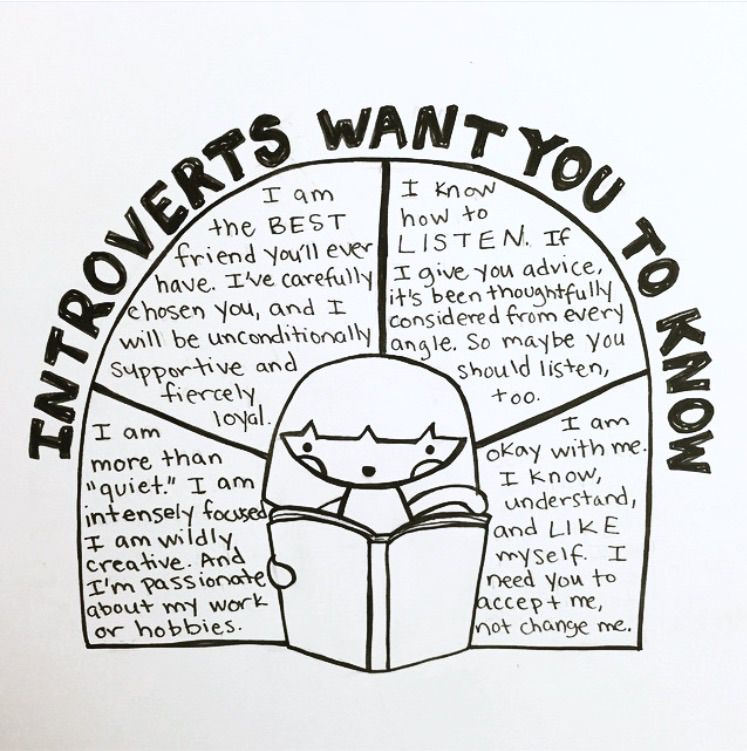
Differences between introverts and extroverts
Tendency to control or impulsiveness
According to Eysenck, the typical extrovert is a cheerful, carefree optimist who aims to make as many acquaintances as possible. Extroverts have impulsive, emotional reactions. Some people have a tendency to be aggressive. An extrovert has poor control over his actions, his focus is constantly shifting. nine0003
The opposite is true for an introvert. Eysenck describes the typical introvert as a calm, shy person. He often engages in introspection. In companies, he behaves aloofly, he shows warm feelings only to close people. Takes a long time to make decisions. It is important for an introvert to plan and think things through in advance. He does not act spontaneously and on emotions. An introvert controls his feelings, it is difficult to piss him off.
Search for positive emotions in different sources
Due to their isolation, introverts are often perceived as sad people who are sad more often than extroverts.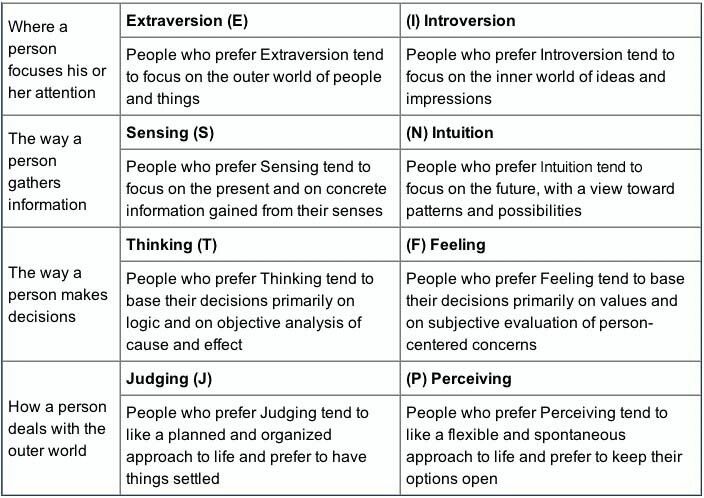 Extroverts do experience more positive emotions than introverts. This is confirmed by researchers at the University of Minnesota. But, according to them, extroverts and introverts get these positive emotions from different sources. nine0003
Extroverts do experience more positive emotions than introverts. This is confirmed by researchers at the University of Minnesota. But, according to them, extroverts and introverts get these positive emotions from different sources. nine0003
Thus, the true goal of an extrovert is the attention of others. Therefore, he is ready to be more involved in communication. An extrovert doesn’t care what the contact will be, he is interested in the “reward” in the form of attention - this is what is fixed in the brain as positive emotions. And for introverts, the “reward” is expressed as contact. Because of this, introverts need less communication. “Therefore, they talk less, are less enthusiastic, and generally less purposeful,” says Colin DeYoung, a psychologist at the University of Minnesota, commenting on the differences in the brains of introverts and extroverts. nine0003
Why modern psychologists do not use the term "introversion"
In social terms, introversion and extraversion mean human behavior.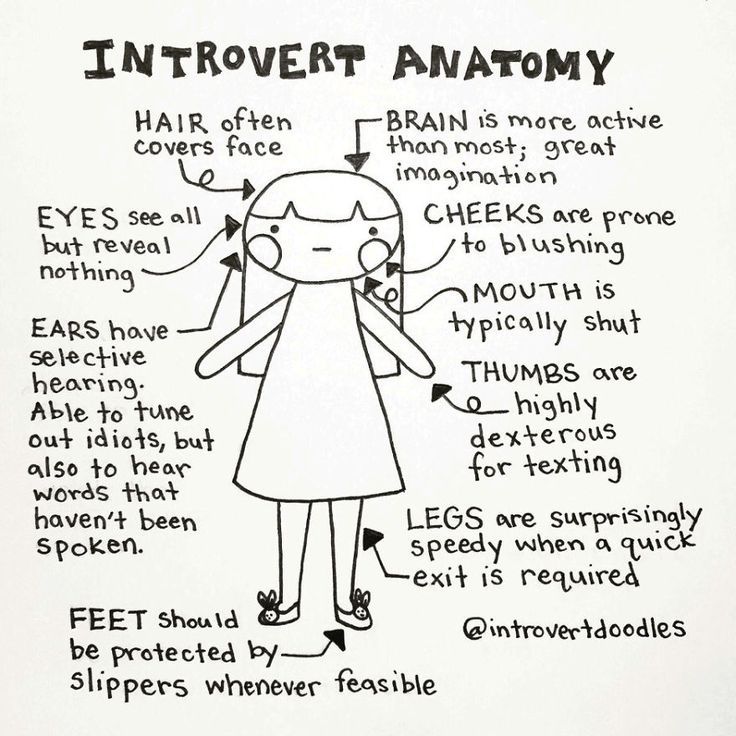 Sociable people are called extroverts, and secretive and reserved people are called introverts. However, introverted behavior can be caused by various reasons, which means that the label “introvert” itself does not help us understand what is happening to a person and why he behaves in a certain way.
Sociable people are called extroverts, and secretive and reserved people are called introverts. However, introverted behavior can be caused by various reasons, which means that the label “introvert” itself does not help us understand what is happening to a person and why he behaves in a certain way.
Elizaveta Muratova:
“Pop psychology says that the effect is determined by the cause. For example, if a woman paints her lips with red lipstick, she wants attention. However, in clinical practice, we always look at what task a person implements with such an action. We call someone an introvert, an unsociable, withdrawn person, when we observe a particular behavior. However, there can be many reasons for such behavior.
For example, there is a stereotype that introverts don't like people. In fact, communication can be a difficult or painful process. It can also be so important that it is scary to start it. Communication may be avoided by trauma survivors.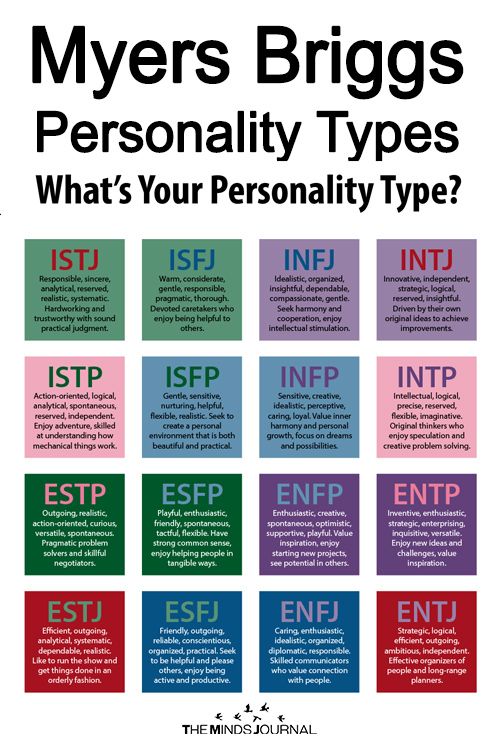 These may be people with a low need for communication. They just don't want to interact, they don't see the point in it. An introvert can be mistaken for a person with low communication skills. Most often, we call people introverts or extroverts because of their behavior, but we don't know why." nine0003
These may be people with a low need for communication. They just don't want to interact, they don't see the point in it. An introvert can be mistaken for a person with low communication skills. Most often, we call people introverts or extroverts because of their behavior, but we don't know why." nine0003
There is an opinion in society that extroverts work better than introverts in a team. But Elizaveta Muratova notes that the point is not in the type of personality, but in the needs of a person. “Almost in every resume you can see a mention of sociability and stress resistance. This is a matter of health, skills, not the type of personality,” says Muratova.
Advantages of introverts
If you continue to use the terms "introverts" and "extroverts", you can find some advantages for the former (despite the stereotype that extroverts are better placed in society). nine0003
Sensitivity
The Yale University team claims that introverts understand people much better than extroverts.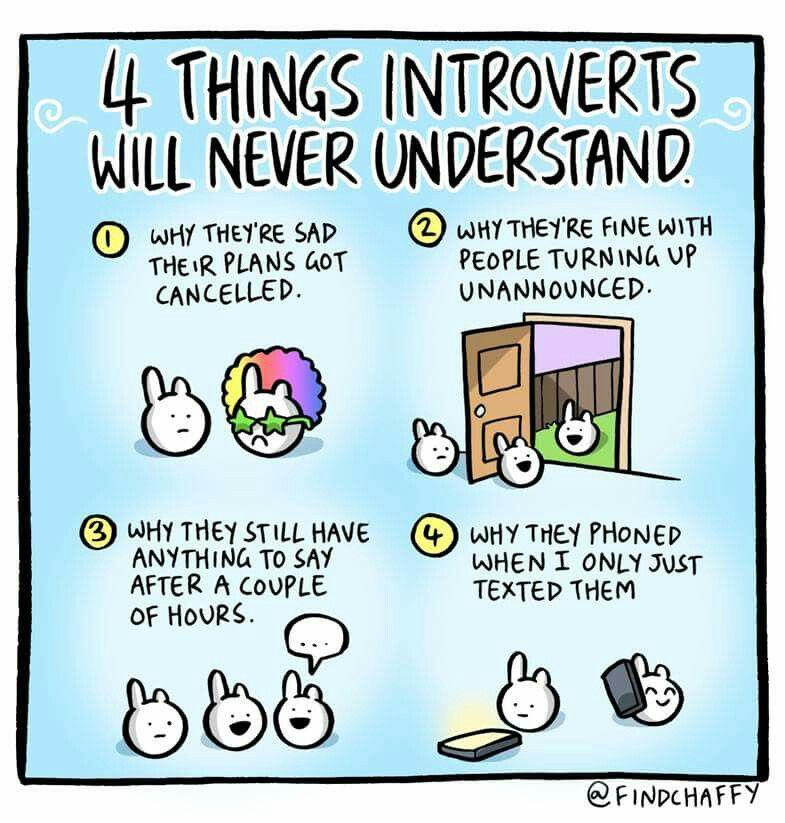 After polling more than a thousand volunteers, experts said that introverts are "born psychologists." Introverts, according to research, may not like interacting with people as much as extroverts, but they will understand them better. Introverts observe and notice minor details. They understand the psychology of others much more clearly than extroverts.
After polling more than a thousand volunteers, experts said that introverts are "born psychologists." Introverts, according to research, may not like interacting with people as much as extroverts, but they will understand them better. Introverts observe and notice minor details. They understand the psychology of others much more clearly than extroverts.
“We see that introverts spend more time observing human nature and reactions than those who are busy socializing. They are also accurate in introspection because they have fewer biases,” said Yale psychologist and study co-author Anton Gollwitzer.
Mindfulness
A 2008 study found that introverts take longer to process information than extroverts. However, the author of the book “Introvert Leader. How to succeed in a society dominated by extroverts” Jennifer Kahnweiler says that this is actually due to the thoughtfulness of introverts. nine0003
Economy in spending internal energy
Since introverts communicate less, they use less internal energy.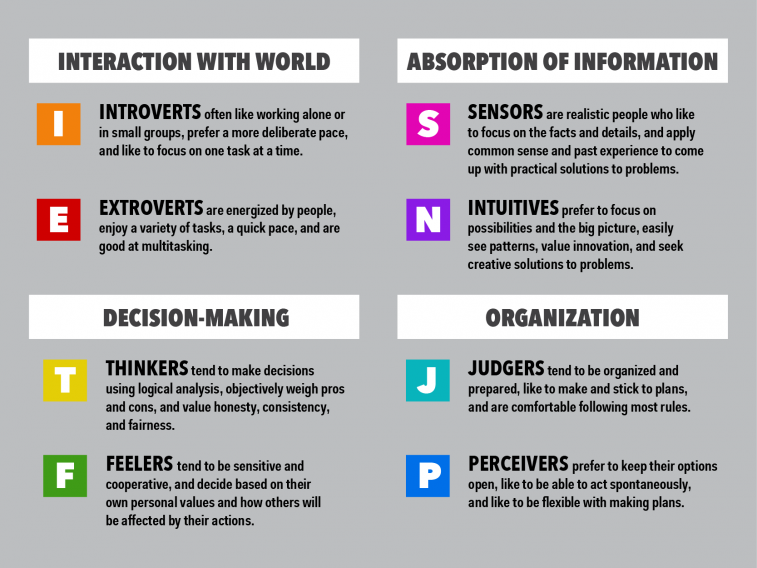 This led scientists from the Canadian University of Calgary to suggest that the stereotypes that open and sociable people are happier than introverts are wrong. Other scientists from Canada and Australia confirm that extraversion comes at a cost of energy and time. Instead of spending these resources on getting and keeping other people's attention, introverts use them to focus and achieve goals. nine0003
This led scientists from the Canadian University of Calgary to suggest that the stereotypes that open and sociable people are happier than introverts are wrong. Other scientists from Canada and Australia confirm that extraversion comes at a cost of energy and time. Instead of spending these resources on getting and keeping other people's attention, introverts use them to focus and achieve goals. nine0003
Safety
Extroverts are more physically at risk than introverts. They are more likely to get into trouble, join a criminal organization, or be arrested. This is written by scientists from North Dakota and Baltimore, USA.
Other advantages of introverts
According to scientists, introverts:
- easily cope with routine, monotonous work, study;
- bring what they started to the end;
- observe discipline and regularity in business; nine0030
- are effectively engaged in self-education;
- analyze well and dive deep into the problem;
- make informed decisions;
- attentively listen to the interlocutor;
- take care of other people and their problems;
- have a high level of insight.
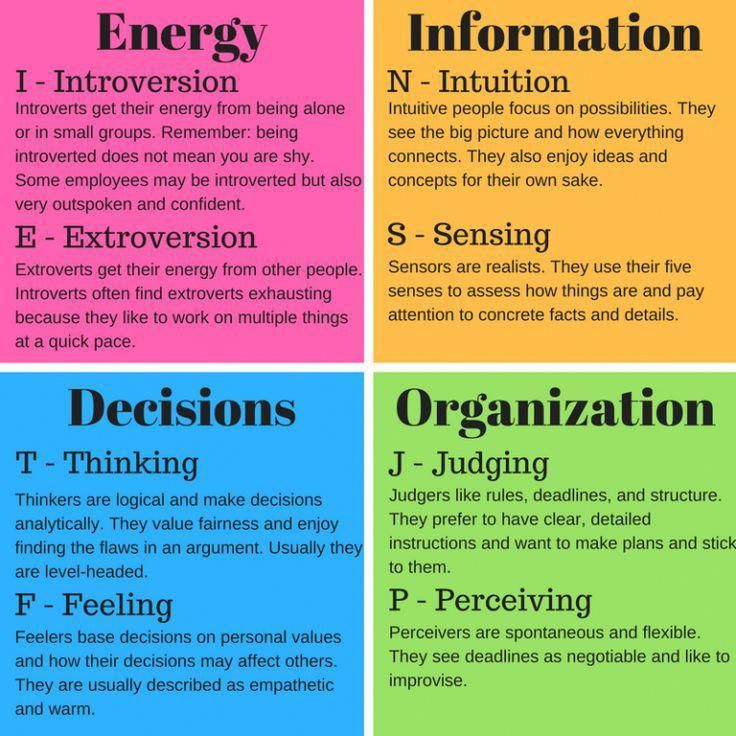
Professions for introverts
Perseverance, patience and an analytical approach to business enable introverts to work in the exact sciences, scientists from Iceland and America believe. An introvert is suitable for a profession that does not require constant communication with people. For example:
- Information security specialist. IT sphere is a godsend for an introvert. All work in the computer, colleagues too. Any problem or inconvenience can also be solved with the help of technology.
- Business analyst. He rarely interacts with colleagues in person. The main tasks are performed on the computer. It is possible to work from home.
- Accountant. Suitable for those who like to work with numbers, and also want to be able to change the scope of work. Accountants are needed both in the restaurant business and in cultural institutions. nine0030
- Software developer.
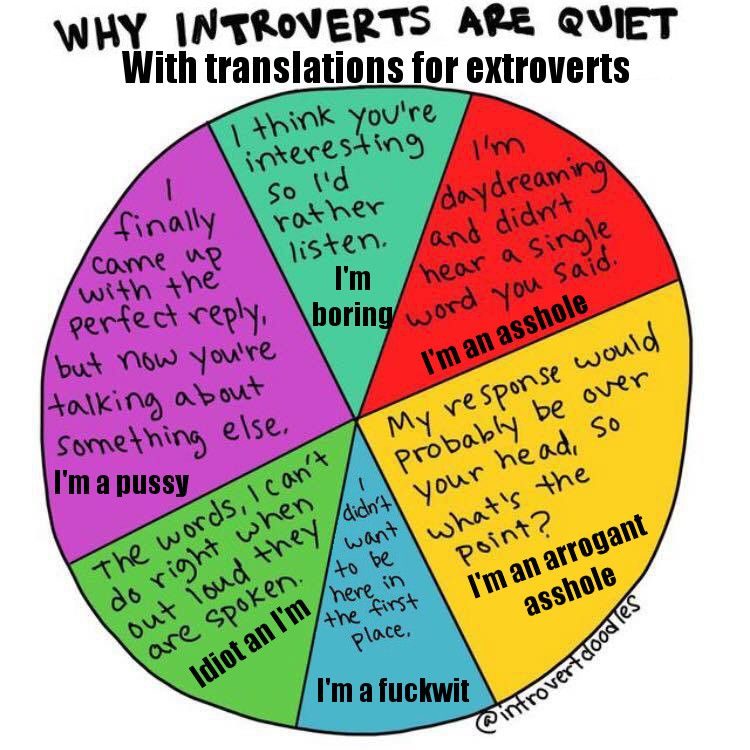 One of the most common remote professions. Freelancers are often hired for this position. Comfortable for an introvert - you don’t need to go to the office with a large number of colleagues, unless you have to connect to online planning meetings.
One of the most common remote professions. Freelancers are often hired for this position. Comfortable for an introvert - you don’t need to go to the office with a large number of colleagues, unless you have to connect to online planning meetings. - Virologist. Science loves concentrated, measured employees. Painstakingly analyzing samples and thoughtfully describing experiments is a calm, routine, but fascinating task for an introvert. nine0029 Editor, proofreader. Monotonous work with text, which requires maximum attention and perseverance, and these are the strengths of an introvert.
- Sound engineer. Instead of communicating with people - recordings of their voices or music. The main thing is not to get a job on the radio, where the presenters speak live around the clock. It will be easier for an introvert if it is possible to pause the voice in the headphones and take a break.
- Video, photo editor.
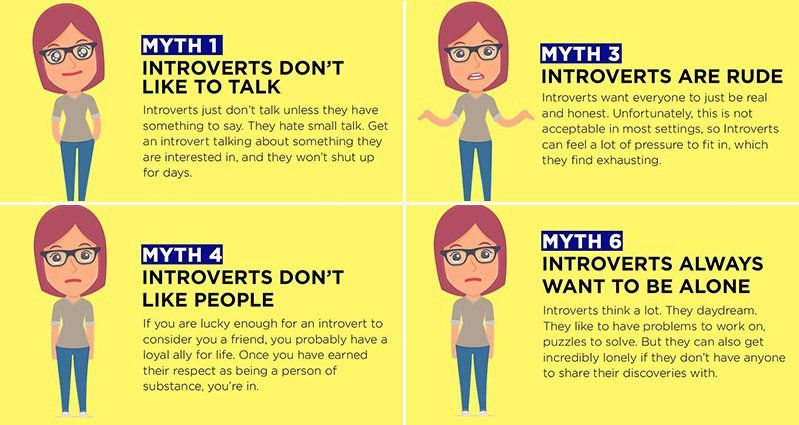 nine0072 Another profession where the employee is alone with the material and tasks. Focus and a slight form of perfectionism are also important here in order to give the perfect shots.
nine0072 Another profession where the employee is alone with the material and tasks. Focus and a slight form of perfectionism are also important here in order to give the perfect shots. - Restorer. This work calms the introvert. A monotonous long process that would surely piss off a typical extrovert.
- Trucker. Long trips alone with your thoughts are not for everyone. But this profession gives maximum opportunities to think and enjoy loneliness. nine0030
How an introvert can become a leader
Psychologist Elizaveta Muratova notes that personality typing is often used in business practice.
Elizaveta Muratova:
“We type people so that they occupy certain positions. Personal structure during life does not change dramatically, but can be somewhat adjusted. Personality type is how a person sees the world, what is important to him, what he gets physiological pleasure from. There are clearly paranoid people.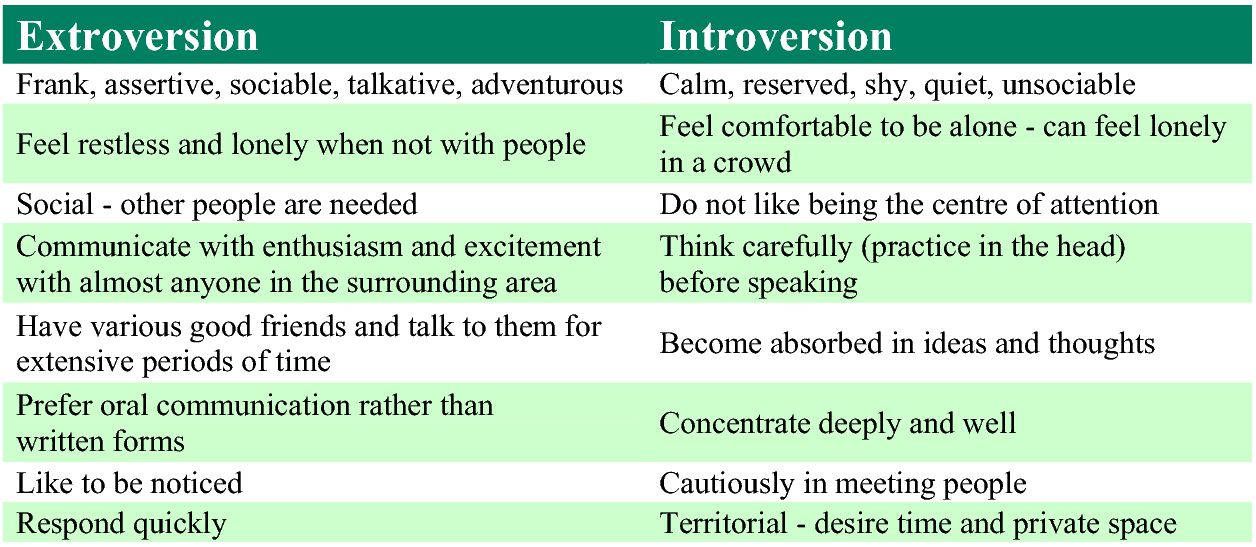 Their main value is their own safety. They show themselves better in scrupulous work. The basic personal value of a person of the histrionic (hysterical) type is communication and seduction. What we call personality traits are, in fact, skills. When we talk about leadership qualities, we must understand that this is a whole complex of processes. For example, in a narcissistic person, leadership comes from the very structure of the personality. But other types of people are also interested in leadership and are able to exercise it. nine0003
Their main value is their own safety. They show themselves better in scrupulous work. The basic personal value of a person of the histrionic (hysterical) type is communication and seduction. What we call personality traits are, in fact, skills. When we talk about leadership qualities, we must understand that this is a whole complex of processes. For example, in a narcissistic person, leadership comes from the very structure of the personality. But other types of people are also interested in leadership and are able to exercise it. nine0003
Why introverts can be good leaders
It is believed that people tend to choose self-confident, charismatic people as leaders. But a Yale University team study says that an introvert in crisis situations outperforms an extrovert in a leadership position. The ability to deeply analyze what is happening and reflect after significant events allows the introvert to understand the situation in more detail. A few hours in silence, alone with your thoughts, will allow the introvert leader to understand what is happening and find the most effective solution.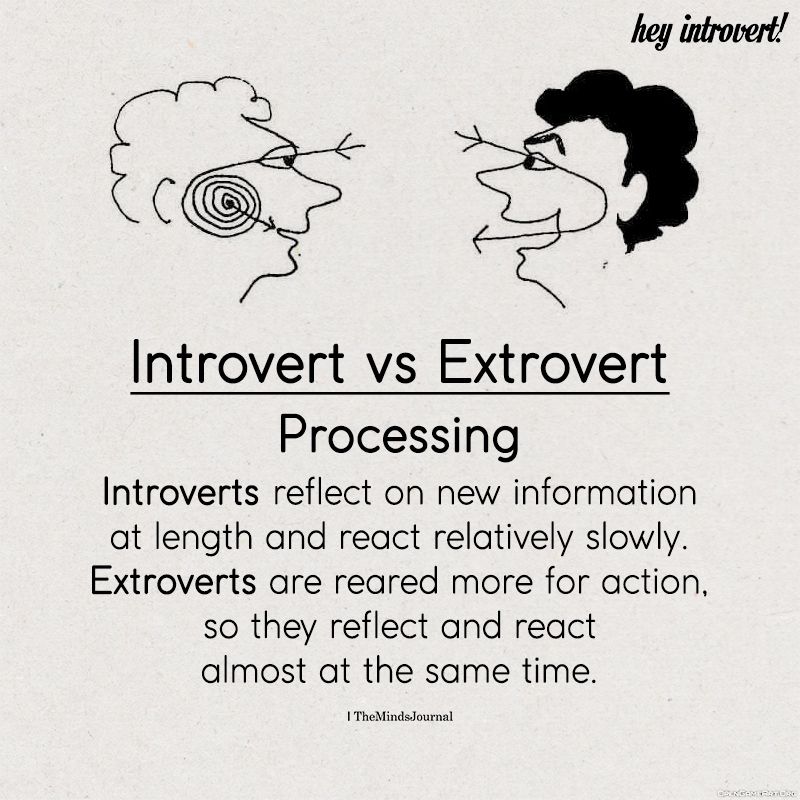 nine0003
nine0003
According to a study by Brigham Young University (Utah, USA), students value tracking deadlines, providing feedback, and coordinating teamwork as leaders. Eloquence and charisma were much less frequently mentioned. “Those who take the time to pause and help others with their tasks are more likely to be seen as leaders,” said study co-author Cody Reeves.
Tips for introverts who want to become leaders
For those introverts who are interested in leadership positions, American scientists recommend:
- Talk more about your ideas, decisions, achievements. Introverts often remain in the background, even when the job is done perfectly. For this type of personality, the result is more important than the amount of attention drawn to the process and the performer. In addition, introverts, as a rule, are not motivated enough, they do not see the global goal in attracting the attention of others.
- To overcome isolation, but not to give up loneliness.
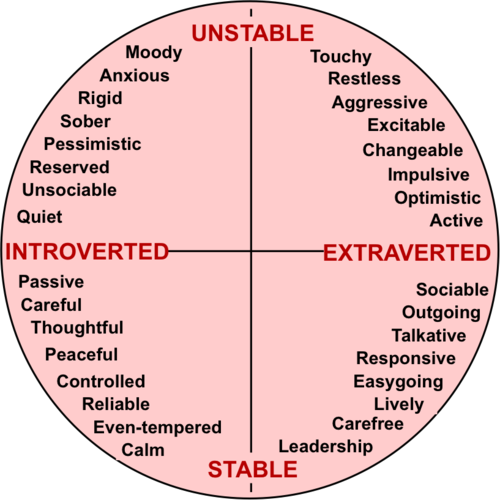 Participating more actively in planning meetings and brainstorming sessions, and even going out to lunch with colleagues, can be a good career boost. nine0030
Participating more actively in planning meetings and brainstorming sessions, and even going out to lunch with colleagues, can be a good career boost. nine0030 - Get inspired by the goal. Understanding why you need to start a conversation and initiate meetings will help you not to be afraid and act. For example, Cambridge University professor Brian Little began to behave like an extrovert: “I am an introvert, but my main project is teaching. I am a professor and I love my students and my work. I look forward to telling them something new and exciting. And I act like an extrovert, because at eight in the morning students need a little humor, a little collaboration, so it’s much easier to get through a busy school day. ” nine0030
- Use your strengths. One study says that the best leaders are those who can plan and work ahead of the curve. Introverts have a well-developed awareness, they are ready to listen and empathize, to help solve the problem.
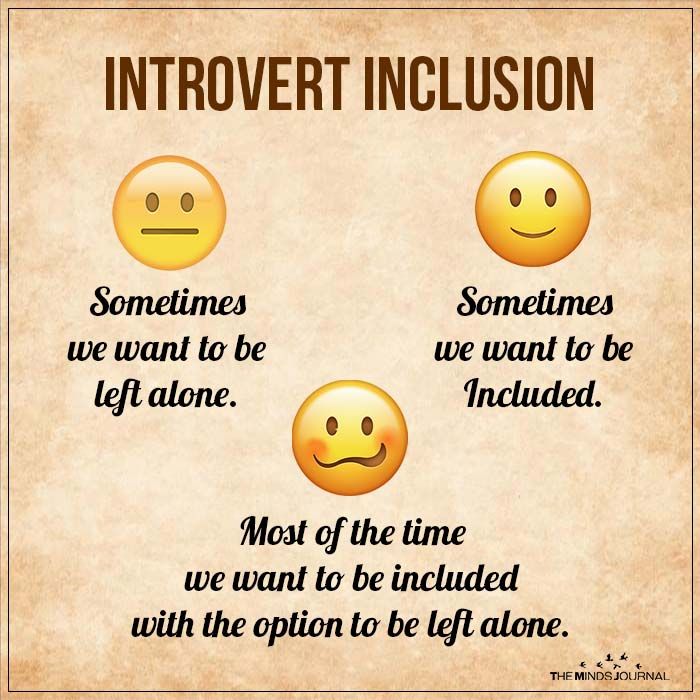
who is this and how to identify? Introversion test
Society tends to label and label everyone who is different from the generally accepted “golden mean”. If an athlete - then stupid, if a candidate of science - then a "nerd", if an introvert - then a misanthrope (hates people). But is it? Who are introverts? Is it bad to have this type of personality? How to find out your psychotype, introvert or extrovert? What to do if you or your environment are introverts? Before you "go into yourself", read this article. nine0003
What is an introvert?
An introvert is a person immersed in his inner world, distinguished by a greater focus on his own experiences and thoughts. It is more difficult for him than for an extrovert to establish social ties, to establish contacts with the outside world.
But not everything is so simple . Do not confuse introverts with lazy people or misanthropes. After all, laziness is an unwillingness to do something, misanthropy is antisocial behavior, but introversion is a feature of human thinking.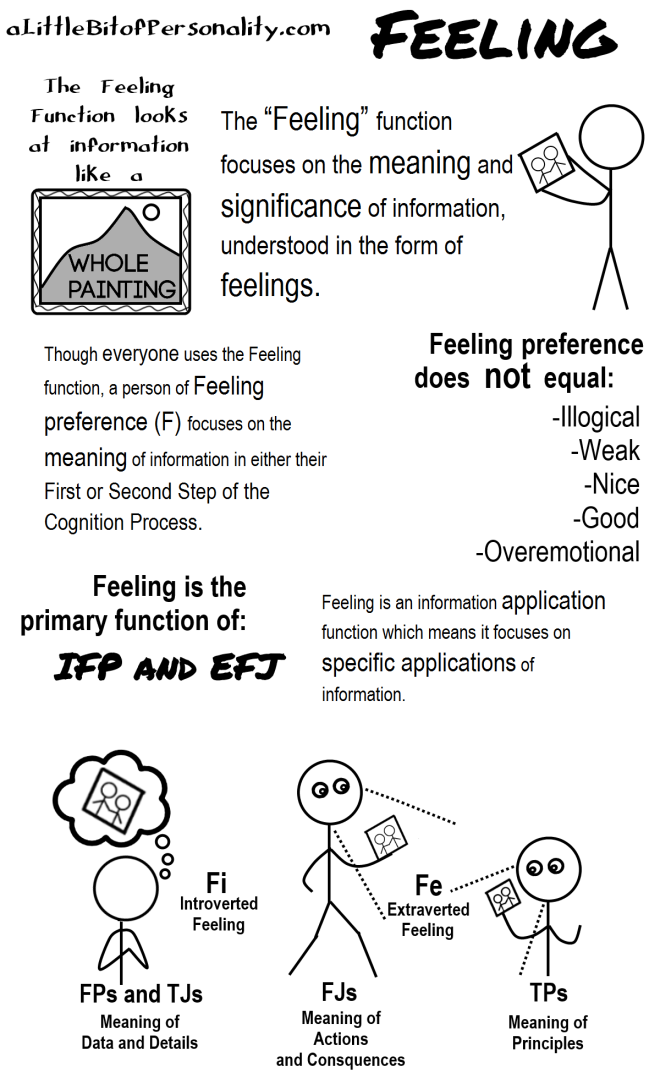 Therefore, if someone says - " I'm an introvert ”, we still need to figure out if this is true. Perhaps it is simply more convenient for him to “hide behind” such a word, actually shirking work or responsibility.
Therefore, if someone says - " I'm an introvert ”, we still need to figure out if this is true. Perhaps it is simply more convenient for him to “hide behind” such a word, actually shirking work or responsibility.
Take the test: introvert or extrovert
A true introvert is far from being a lazy person , his efforts are simply directed towards introspection, contemplation of the inner world. Such people very often become philosophers, inventors, scientists, writers, poets, which requires no less work than communication with others. nine0003
Introvert and extrovert.
Pure psychotypes are extremely rare. Most often, an introvert and an extrovert are combined in a person - this is due to heredity, through which the signs of parents are transmitted. At different ages, one or another psychotype is activated, which depends on the conditions of life and its rhythm.
For the first time, the existence of two opposite types of personality was noticed by the Swiss psychologist Carl Jung , who developed the concept of analytical psychology.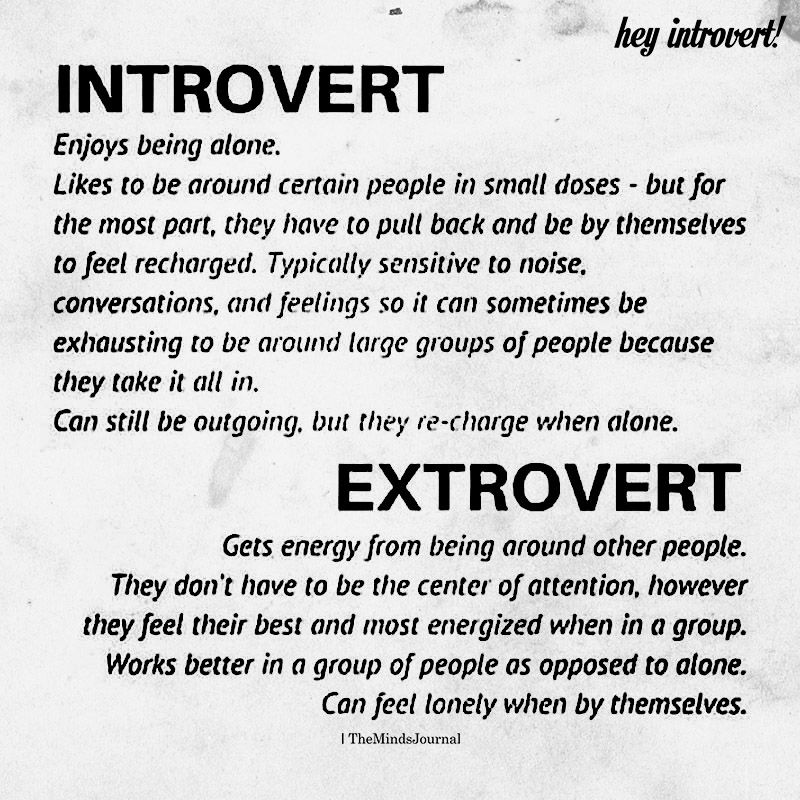 Thanks to his work, people learned who introverts and extroverts are. The personality of the former turned out to be directed “inward”, while the latter, on the contrary, focused on interaction with the outside world. In total, Jung deduced 8 psychotypes of personality. nine0003
Thanks to his work, people learned who introverts and extroverts are. The personality of the former turned out to be directed “inward”, while the latter, on the contrary, focused on interaction with the outside world. In total, Jung deduced 8 psychotypes of personality. nine0003
Further research has only expanded our knowledge of introverts, highlighting several of their types. Studying psychotypes, the British scientist Hans Eysenck found that introverts are a collective concept, which, in turn, is divided into a number of types. They may be emotionally stable or unstable, corresponding to a phlegmatic or melancholy temperament .
Depending on whether a person is phlegmatic or melancholic, his introversion will manifest itself in different ways. In the first case, he will be detached from the outside world, and in the second, he will be distinguished by excessive vulnerability and worries. nine0003
Pronounced psychotypes are rare. Basically, both types of personality are combined, just in different periods they are not expressed in the same way.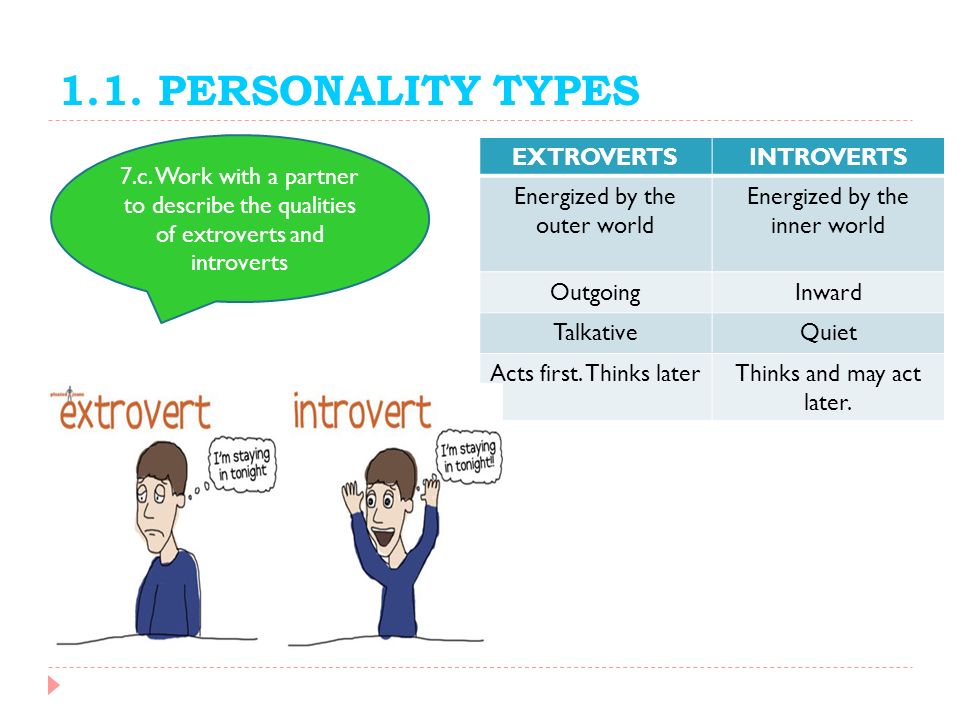 Sometimes one of the qualities develops more actively. To determine your personality type, and at the same time your temperament, you can:
Sometimes one of the qualities develops more actively. To determine your personality type, and at the same time your temperament, you can:
Pass a temperament test
Signs of an introvert.
- Feels lonely even among people;
- Avoids crowds, noisy companies;
- Not in a hurry to make new acquaintances; nine0030
- If attached to a person, then for a long time;
- Knows how to make friends, is distinguished by fidelity;
- Inclined to introspection, philosophical reflection;
- Prefers to listen rather than talk;
- Likes to fantasize;
- Carefully plans his actions in advance;
- Patient, able to control emotions;
- Differs in observation, attentive to details;
- Holds grudges, unpleasant memories for a long time. nine0275
If the test results coincide with most of the listed signs, then it can be argued that the person is an introvert.
What does it mean to be an introvert?
Introverts, unlike extroverts, do not depend so much on the opinions of others .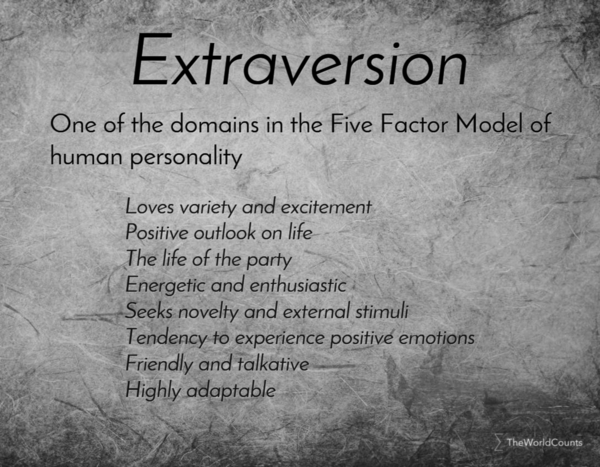 They have their own value system. They are able to set a goal and move towards it contrary to the opinions of others. And this is one of the criteria for leadership. Introverts are good at taking responsibility. They are very self sufficient. This type of personality is distinguished by perseverance, they concentrate better and are able to carefully prepare for the upcoming work. nine0003
They have their own value system. They are able to set a goal and move towards it contrary to the opinions of others. And this is one of the criteria for leadership. Introverts are good at taking responsibility. They are very self sufficient. This type of personality is distinguished by perseverance, they concentrate better and are able to carefully prepare for the upcoming work. nine0003
Some will immediately say that an introvert is a quiet, modest and shy person who is afraid to stick his nose out of the house, absolutely passive, inclined to obey others. One big minus. But is it really so? Imagine the surprise of those who find out that most of the famous leaders and shocking artists of are introverts.
For example, world famous introverts are Barack Obama, Hillary Clinton, Warren Buffett, Mark Zuckerberg, Bill Gates, Elon Musk, Michael Jordan, Steven Spielberg, Keanu Reeves, Lady Gaga, Johnny Depp and many others. Of the historical figures, it is worth remembering Isaac Newton, Charles Darwin, Albert Einstein, Mahatma Gandhi and Abraham Lincoln. nine0003
nine0003
If someone has already thought about how to become an introvert, you should not rush into a decision, because introverts are not without flaws. First of all, their minuses are connected with unwillingness to build social connections . Introverts can neglect the opinions of others, which sometimes plays a cruel joke with them. In addition, people with the psychotype "introvert" adapt worse to external changes, move up the career ladder more slowly, and it is more difficult for them to find friends. At the same time, introverts themselves are very reliable and good friends. nine0003
Is it possible to become an introvert?
Let's say some extrovert decided to "retrain" as an introvert. Is he capable of doing it? And most importantly, does he need it? What is an introvert through the eyes of another personality type? Most likely, for a classic extrovert, he will be closed, unsociable, boring.
So why change your personality type, even if it were possible? An approximate train of thought of such a person is as follows.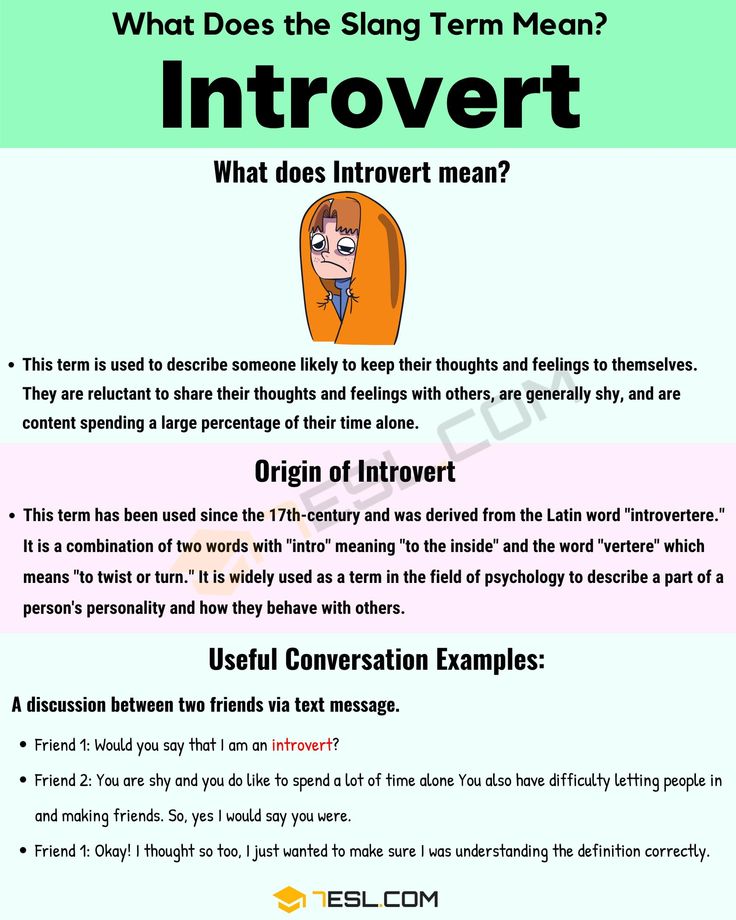 Most likely, he fails because of his superficiality and hyperactivity. He asks himself the question, why is this happening? Looking for answers on the Internet. Learn what an introvert and extrovert are. He understands that he belongs to the second psychotype. Gathers information to get to know the introvert personality type better. At some point it starts idealizes the introverted psychotype and is trying to rebuild his temperament and personality.
Most likely, he fails because of his superficiality and hyperactivity. He asks himself the question, why is this happening? Looking for answers on the Internet. Learn what an introvert and extrovert are. He understands that he belongs to the second psychotype. Gathers information to get to know the introvert personality type better. At some point it starts idealizes the introverted psychotype and is trying to rebuild his temperament and personality.
Is it worth it, and how great are his chances of becoming an introvert ? It is believed that temperament and psychotype are laid before birth. They depend on the anatomical and physiological characteristics of a person. That is, they can be corrected only in connection with fundamental changes in the body. Simple workouts or exercises will not change the type of personality.
Take a personality test
Development of introversion.
It is possible to develop the capacity for introversion. Like playing sports with different body types. Both an ectomorph (thin) and a mesomorph (strong man) can pump up, but it will be much more difficult for the first to do this. Also, an extrovert can become more thoughtful, scrupulous and assiduous, but an introvert will do it better.
Like playing sports with different body types. Both an ectomorph (thin) and a mesomorph (strong man) can pump up, but it will be much more difficult for the first to do this. Also, an extrovert can become more thoughtful, scrupulous and assiduous, but an introvert will do it better.
It is enough to choose those qualities of introverts that it is desirable to adopt, and then methodically practice in their development. Listen more than speak, analyze your life more often, plan actions, etc. Moreover, an introvert and an extrovert often coexist in one person, so it is realistic to develop the strengths of both psychotypes. It is much more difficult to unite a team in which there are introverts and extroverts. nine0003
How to communicate with an introvert?
Introverts, due to a special type of thinking, need to find their own approach. First of all, it should be remembered that an introvert is extremely jealous of his personal space. He is not ready to let everyone in there.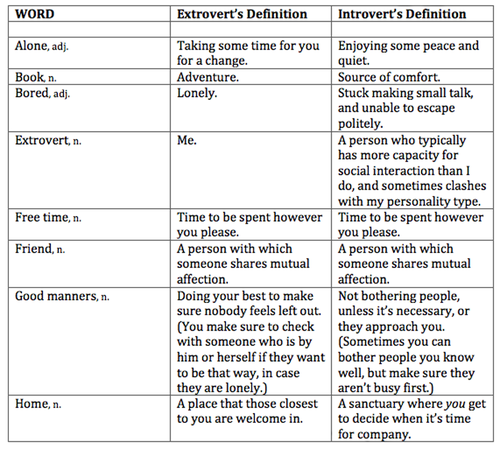 Earning the trust of an introvert is a long and thorny path. But the result of such efforts will exceed all expectations, because introverts are faithful and reliable life partners.
Earning the trust of an introvert is a long and thorny path. But the result of such efforts will exceed all expectations, because introverts are faithful and reliable life partners.
Secondly, it is desirable to choose words, to respect the inner world of an introvert. nine0071 They remember grievances for a long time , and if they are "hurt to the quick", then one "sorry" will not end the matter.
Thirdly, introverts do not like turmoil and crowds of people, it is pointless to drag them to noisy parties, rallies and mass celebrations. If you are planning a meeting with an introvert, it is better to invite him to nature, to visit or a quiet secluded place, somewhere in a cozy place.
These are tips for communicating with introverts. But what if you yourself are prone to introversion?
Is it okay to be an introvert? nine0005
First of all, an introvert is not a psychological deviation, but a special way of thinking. There is nothing bad in it. If you figure it out like this, then extroverts even more often get into unpleasant situations, due to their superficiality and energy. It is much worse when "language is ahead of thinking." In this calm people clearly win.
If you figure it out like this, then extroverts even more often get into unpleasant situations, due to their superficiality and energy. It is much worse when "language is ahead of thinking." In this calm people clearly win.
So, if you belong to an introverted personality type, then you should not dramatize. It is better to analyze what exactly prevents you from achieving results and fix just that. If an introvert has developed creativity or logic skills, this is clearly not a disadvantage. The ability to plan is also useful anytime, anywhere. So they don't need to be corrected. But it is desirable to overcome excessive isolation and vulnerability.
For a change , you can take the initiative in communicating with an interesting person. The first to write or call, invite for a walk. Even if a refusal follows, it’s not scary. It is much worse not to try if this call is actually expected. nine0003
You should also be more willing to let others into your life.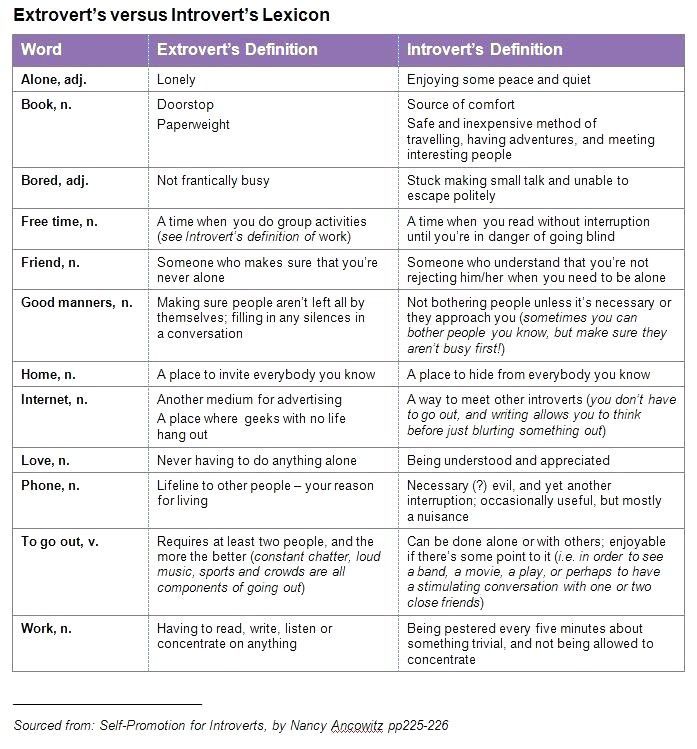 It is simply desirable to be prudent, but offending others with “closed doors” is not an option. After all, the world is full of good people, so it makes no sense to isolate yourself from them.
It is simply desirable to be prudent, but offending others with “closed doors” is not an option. After all, the world is full of good people, so it makes no sense to isolate yourself from them.
The most important thing is not to get hung up on resentments, because many of them arise almost out of the blue. Sometimes a person offends someone by accident, not wanting it. What's the point of making a tragedy over a trifle? Even the most pronounced introvert is able to forgive . To do this, it is enough for him to switch to something good and just try not to remember unpleasant incidents.
Thinking about who an introvert is, you can more and more often catch yourself thinking about the success of such a person. But every advantage has its price. In order for an introvert to be able to fully realize his potential, he needs to learn how to contact with others, to forget the bad. And others should remember that any introvert is a rather vulnerable person, so it is advisable to respect him and his inner world.